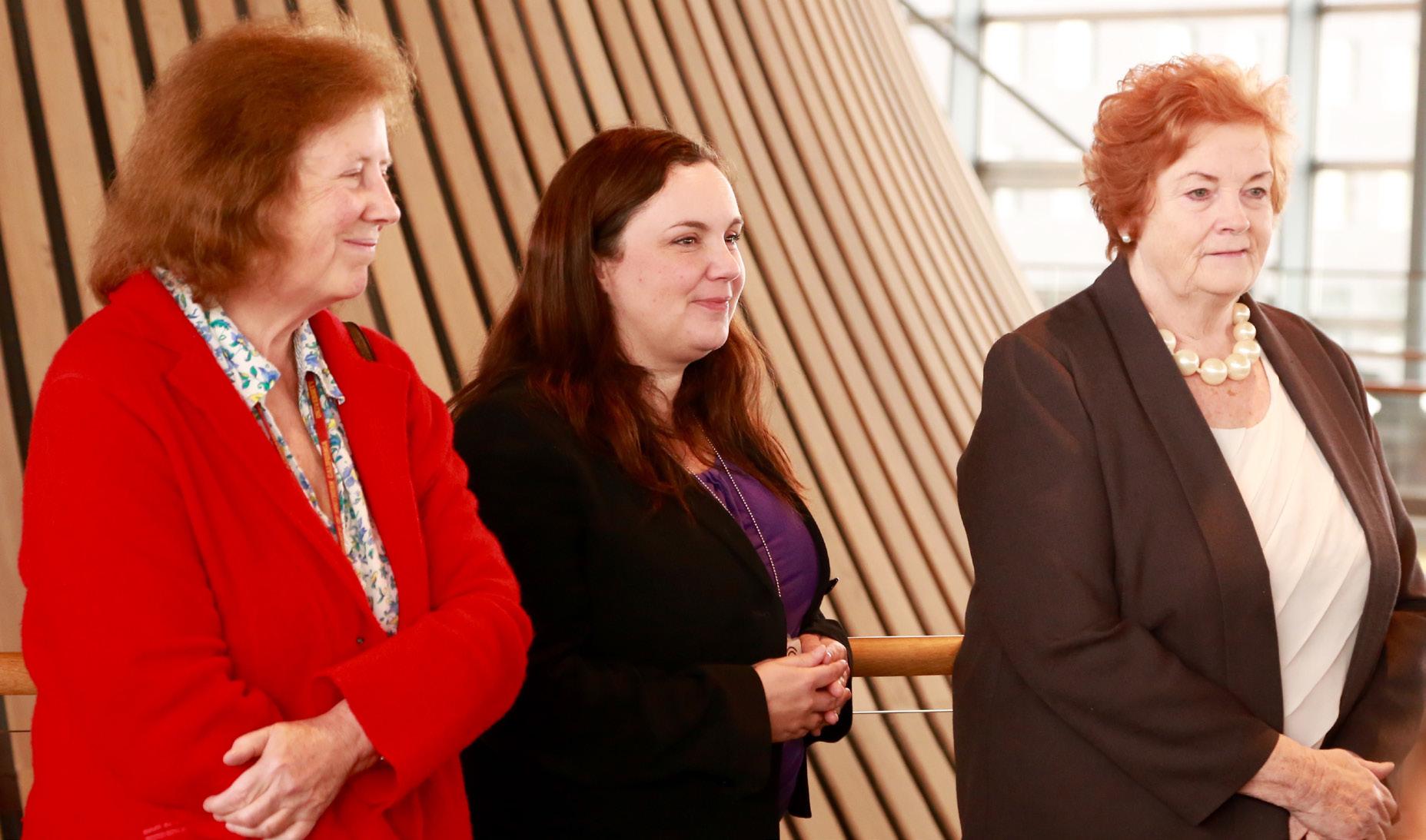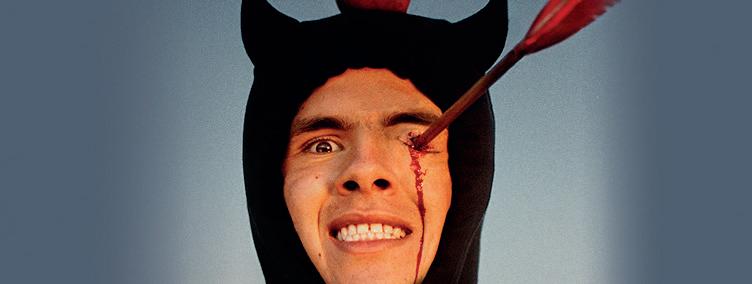




















(Seven different positions available). These positions are taken up from July 1st until June the following year. These positions are full-time jobs so students have to take a year out during their time in office, unless they are graduating the same year.
SU President
Ariana Riccardi
Gina Dunn
Vee Somas
VP Education
Jazz Walsh
Kensa Wilson
Marc Perez Piquer
Matthew Bird
Megan Smith
VP Heath Park Campus
Ashly Alava Garcia
Miraj Raval
Oliver Cleal
VP Postgraduate Students
Angie Flores
Bianca Cridland
Janet Williams
Jesse Duong
Maanaav Rajput
Mukul Madhav
Wendy Muganda
VP Societies and Volunteering
Alex Meers
Shreshth Goel
Zack Hayward
VP Sports and Athletic
Union President
Alissa Thiel
Ben Marett
Bradley Smith
Olivia Evans
Pippa Wisdom
VP Welfare
Brendan Chitty
Matt Eades
Nabil Subroto
Rebecca Deverell

On the surface, music can seem like a turbulent and chaotic industry. All around the world, bands and labels are constantly vying to find ‘the next big thing’ and leave their own, definitive mark on the modern cultural landscape. Even within the industry itself, the recent rise of streaming platforms has forced labels to adapt and re-consider the relationship between artistic creativity and commercial-led statistics.
With all of this in mind, the prospect of breaking down the career of an industry giant like Julie Weir can understandably feel like a daunting task in itself.
Looking back at over twenty years in the music industry, Weir sat down with Gair Rhydd to discuss her humble origins as an independent label head alongside the key challenges currently facing the industry at large.
In short, Weir begins, her career has been equal parts “terrifying” and “absolutely staggering.”
Since joining Sony Music back in April 2016, Weir has stood as the Label Head for ‘Music for Nations’, the British independent record label responsible for signing legendary artists like Metallica, Tank and Slayer. Self-styled as “the naughty corner of Sony Music UK”, Music for Nations remains to be one of the most successful and well-established rock/metal labels in Europe. Weir stepped up to take control of Music for Nations after Sony decided to revive the label in 2015.
As someone with a close connection “to the heritage of the label”, Weir said that she relished the opportunity to build on its original catalogue of artists, but was mindful to retain the rebellious, alternative spirit that was (and continues to be) central to its brand.
“We are rebellious in the nicest way considering we work with a lot of noisy music”, she jests. “My team in the office is really small, but we’re lucky because we work in such a specialist sphere that we never get told what to do - Nobody really understands what we do and I like that.”
“On a daily basis,” Weir explains, her team is committed to finding creative ways to support their artists and open them up to new opportunities to grow and develop.
Within the music industry, she continues, “the onus is very much on the artist to make some noise, but in order for that noise to be made, they still need to grab some attention.”
Throughout her time at Sony Music, Weir and her team have collaborated with a range of high-street fashion and perfume brands in order to promote their artists even further. Most recently, Weir added that she has been working closely with partners in the gaming industry as part of an upcoming collaborative project - A project that she believes demonstrates the growing interconnectedness of music with other cultural and technological sectors.
With Music for Nations being “very niche compared to the rest of the company”, Weir added that her team have a lot of creative freedom and are therefore able to take a more hands-on approach with their artists.
“It’s being able to see talent and being able to spot the possibilities and where things can go in the future,” she says. “My interest in this is signing bands and developing them all the way through - That’s where the pleasure in this comes from.”
Alongside this focus on helping to develop artists, another key consideration for Weir is to provide a platform for a more diverse range of voices to be heard.
Similar questions of representation have remained at the forefront of many recent discussions in and around the music industry. As echoed by the 2019 USC Anneberg Music Report, whilst the industry has made definitive progress in terms of representation and inclusion, male artists continue to dominate with female artists holding only 22.5% of the top-performing songs.
At Music for Nations, Weir said that she is committed to tackling this problem head-on and improving the visibility of female artists from a ‘grassroots’ perspective.
To read Jack's full interview with Julie Weir on the key challenges currently facing the music industry, turn to page 5.

Wales have made the decision to make early-at-home abortions a permanent feature of their healthcare system, after the arrangements were temporarily put in place in 2020 to help alleviate the pressure on the NHS.
The access to abortion pills during the pandemic was simplified, with
Beth fydd effiath
Mae llawer o fyfyrwyr prifysgol wedi drysu ar ansicrwydd y flwyddyn a hanner diwethaf o fod yn sownd yn eu hystafelloedd gwely, darlithoedd ar Zoom a rheolau llym yn atal eu bywyd cymdeithasol.
Mae Celyn Davies yn un o rheiny, Yn bedair ar bymtheg oed a chychwynnodd cwrs Nyrsio ym Medi 2020.
Er iddi ddal ati ar y cwrs am dair blynedd hapus a llwyddiannus, penderfynodd roi’r gorau iddi ar ôl tri mis. Celyn: “Covid yn chwalu fy mreuddwyd nyrsio.”
I ddarllen erthygl lawn Lowri ar effaith COVID-19 yng Nghymru, trowch i dudalen 12
women able to get the two pills over the counter with no hospital visit or healthcare professional advice. Despite initial concerns regarding the safety of the new measures, statistics show that for the majority the scheme has been a success, and some believe that early-at-home abortions should have come into effect earlier.
The measure takes away the need for consultation with a healthcare professional, instead replacing it with
Are there any barriers to learning Welsh?
Throughout my school years, I always felt a little “less Welsh” than everyone else in my class.
Although I am fluent in Welsh, was in the top set and achieved an A* at GCSE, I still felt that I wasn’t quite as good as everyone else there. My mother is English and father is Welsh but doesn’t speak the language, so even though my sister and I were both fluent, we spoke English all the time at home.
As I’ve grown up this feeling of being a little ‘less Welsh’ developed into a resentment towards a small, tiny minority of the Welsh community.
To read Eirian's full article discussing the potential barriers to accessing Welsh, turn to page 19
a phone call or e-consultation allowing women to be in the comfort of their own home. The early medical abortion scheme can be used for all women and girls who are within nine weeks and six days from the time of conception.
To read more about the potential impact the rollout of this new scheme may have for people seeking abortions, turn to page 14
The Sporting world reacts to Ukraine Crisis
Russia’s action against its neighbour Ukraine has received universal condemnation from across the globe and the sporting world is no different. Various sporting events due to be held in the country are being cancelled in the face of actions taken by the Putin regime.
Earlier this week, it was announced that the UEFA champions league final, originally being hosted in the Russian city of St Petersburg on the 28th of May, will now be moved to Paris.
To read Ryan's full article on the action brought against Russian teams, turn to page 29
Coordinator
Elaine Morgan
Editor-in-Chief
Jack Robert Stacey
Deputy Editors
Anurag Hegde
Vicky Witts
Zoe Kramer News
Zoe Kramer
Alex Hughes
Beth Williams
George Symonds
Shivika Singh Features
Eva Rodericks
Jasmine Edge
Sophie Revell
Taf-od
Nel Richards
Alexa Price
Gracie Richards
Nansi Eccott
Politics
Luthien Evans
Darcy Arnold
Ella Lloyd
Katherine Seymour Manal Ahmed Comment
Vicky Witts
Catarina Pinto Vicente
Eirian Jones
Katherine Wheeler Advice
Harriet Lowbridge
Megan Shinner
Ruth Hoey Review
Iris Knapman
Atreya Mukerjee
Caz Love
Science and Technology
Mia Becker-Hansen
Anna Thomas Elie Gould
Jemma Powell
Theodore Tadros Sport
Anurag Hegde
Adam Brown
Joe Edgar-Smith
Tom Hawkins
Sam Joseph
Head of Digital Media
Sophia Grace
Social Media Manager
Ella Lloyd
Digital Media Editors
Cinzia Appetecchia
Emily Smith
Joseph Liu
Copy Editors
Beca Fflur Williams
Bonnie Wileman
Emily Bryant
Jess Henderson
Libby Griffiths
Lois Campbell
Maisie Granger
Sam Joseph
Write to the editor
At Gair Rhydd we take seriously our responsibility to maintain the highest possible standards. We may occasionally make mistakes, however if you believe we have fallen below the standards we seek to uphold, please email editor@gairrhydd.com. You can view our Ethical Policy Statement and Complaints Procedure at cardiffstudentmedia.co.uk/complaints.
Opinions expressed in editorials and opinion pieces are not reflective of Cardiff Student Media, who act as the publisher of Gair Rhydd in legal terms, and should not be considered official communications or the organisation’s stance. Gair Rhydd is a Post Office registered newspaper.

‘The Power of Music’: is there anything to it? ‘Grym Cerddoriaeth’: a oes unrhyw beth iddo?

‘The Power of Music’: Throughout human history, music has remained to be a key source of inspiration. Source: Pexels (via Pixabay)
Jack Robert Stacey Editor-in-Chief
Music is an artform that has been at the cornerstone of life and culture throughout human history. The world’s oldest melody, ‘Hurrain Hymn No. 6’, was inscribed on a clay tablet that dates back 4,000 years to the Sumerian Empire. Even earlier still, archaeologists have discovered primitive instruments composed of bone and ivory that may have been used by neanderthal tribes up to 60,000 years ago.
With such a broad range of different artists, genres, moods, and styles to choose from, music is perhaps one of the most personal and experiential artforms.
On its most base level, as the Encyclopaedia Britannica notes, ‘music’ can be understood as the combination of ‘vocal or instrumental sounds for beauty of form or emotional expression’ – For many people, however, it is so much more than this.
The significant, yet little understood role that music plays was echoed by the late Aretha Franklin, who recognised that, “music does a lot of things for a lot of people.
It’s transporting, for sure. It can take you right back, years back, to the very moment certain things
happened in your life. It’s uplifting, it’s encouraging, it’s strengthening.”
Rather interestingly, recent studies into the mental and physical health benefits of music have indicated that there might actually be something more behind the so-called ‘power’ of music.
As part of a 2001 study by McGill University in Montreal, researchers discovered that listening to music increases the amount of dopamine produced in the brain and, therefore, may prove to be a suitable treatment for some forms of depression in the future – a significant finding behind the continued growth of the socalled ‘music therapy’ movement.
Alongside these mental benefits, listening to music can reportedly ease physical pain and, as demonstrated in a study into those recovering from operations, may make patients likely to request pain medication.
With these recent scientific findings, we are perhaps coming closer to understanding the possible future applications of ‘music therapy’ and, perhaps more critically, the positive influence or ‘power’ that music holds.
Even in spite of this, music remains to be a key source of inspiration for people around the world and persists as one of the most expressive artforms for amateurs, musicians and enthusiasts alike.
‘Grym Cerddoriaeth’: Drwy gydol hanes, mae cerddoriaeth wedi parhau i fod yn ffynhonnell ysbrydoliaeth. Tarddiad: Pexels (via Pixabay)
Jack Robert Stacey Prif Olygydd
Gan Mae cerddoriaeth yn ffurf ar gelf sydd wedi bod yng nghonglfaen bywyd a diwylliant trwy gydol hanes dyn. Alaw hynaf y byd, ‘Hurrain Hymn Na. Cafodd 6 ’, ei arysgrifio ar dabled clai sy’n dyddio’n ôl 4, 000 o flynyddoedd i’r Ymerodraeth Sumerian. Hyd yn oed yn gynharach fyth, mae archeolegwyr wedi darganfod offerynnau cyntefig sy’n cynnwys asgwrn ac ifori a allai fod wedi cael eu defnyddio gan lwythau neanderthalaidd hyd at 60,000 o flynyddoedd yn ôl.
Gydag ystod mor eang o wahanol artistiaid, genres, hwyliau, ac arddulliau i ddewis ohonynt, efallai mai cerddoriaeth yw un o’r ffurfiau celf mwyaf personol a phrofiadol.
Ar ei lefel fwyaf sylfaenol, fel y noda’r Gwyddoniadur Britannica, gellir deall ‘cerddoriaeth’ fel y cyfuniad o ‘synau lleisiol neu offerynnol ar gyfer harddwch ffurf neu fynegiant emosiynol’ - I lawer o bobl, fodd bynnag, mae cymaint yn fwy na hyn.
Ochr yn ochr â’r buddion meddyliol hyn, gall gwrando ar gerddoriaeth leddfu poen corfforol ac, fel y dangosir mewn astudiaeth i’r rhai sy’n gwella ar ôl llawdriniaethau, gall wneud cleifion yn debygol o ofyn am feddyginiaeth poen. Gyda’r canfyddiadau gwyddonol diweddar hyn, efallai ein bod yn dod yn agosach at ddeall cymwysiadau posibl ‘therapi cerdd’ yn y dyfodol ac, yn fwy beirniadol efallai, y dylanwad cadarnhaol neu’r ‘pŵer’ sydd gan gerddoriaeth.
Hyd yn oed er gwaethaf hyn, mae cerddoriaeth yn parhau i fod yn ffynhonnell ysbrydoliaeth allweddol i bobl ledled y byd ac mae’n parhau fel un o’r ffurfiau celf mwyaf mynegiadol ar gyfer amaturiaid, cerddorion a selogion fel ei gilydd.
Adleisiwyd y rôl arwyddocaol, ond ychydig yn ddealladwy y mae cerddoriaeth yn ei chwarae gan y diweddar Aretha Franklin, a oedd yn cydnabod bod “cerddoriaeth yn gwneud llawer o bethau i lawer o bobl. Mae’n cludo, yn sicr. Gall fynd â chi reit yn ôl, flynyddoedd yn ôl, i’r eiliad iawn y digwyddodd rhai pethau yn eich bywyd. Mae’n ddyrchafol, mae’n galonogol, mae’n cryfhau.” Yn ddiddorol iawn, mae astudiaethau diweddar i fuddion meddyliol a chorfforol cerddoriaeth wedi nodi y gallai fod rhywbeth mwy y tu ôl i’r hyn a elwir yn ‘bwer’ cerddoriaeth. Fel rhan o astudiaeth yn 2001 gan Brifysgol McGill ym Montreal, darganfu ymchwilwyr fod gwrando ar gerddoriaeth yn cynyddu faint o dopamin a gynhyrchir yn yr ymennydd a, felly, efallai y bydd yn driniaeth addas ar gyfer rhai mathau o iselder yn y dyfodol - canfyddiad sylweddol y tu ôl i dwf parhaus y mudiad ‘therapi cerdd’ fel y’i gelwir.
Gair Rhydd sat down with the Label Head of ‘Music for Nations’ to break down her long, successful career alongside the key challenges currently facing the music industry at large
On the surface, music can seem like a turbulent and chaotic industry. All around the world, bands and labels are constantly vying to find ‘the next big thing’ and leave their own, definitive mark on the modern cultural landscape. Even within the industry itself, the recent rise of streaming platforms has forced labels to adapt and re-consider the relationship between artistic creativity and commercial-led statistics.
With all of this in mind, the prospect of breaking down the career of an industry giant like Julie Weir can understandably feel like a daunting task in itself.
Looking back at over twenty years in the music industry, Weir sat down with Gair Rhydd to discuss her humble origins as an independent label head alongside the key challenges currently facing the industry at large.
In short, Weir begins, her career has been equal parts “terrifying” and “absolutely staggering.”
Since joining Sony Music back in April 2016, Weir has stood as the Label Head for ‘Music for Nations’, the British independent record label responsible for signing legendary artists like Metallica, Tank and Slayer. Self-styled as “the naughty corner of Sony Music UK”, Music for Nations remains to be one of the most successful and well-established rock/metal labels in Europe.
Weir stepped up to take control of Music for Nations after Sony decided to revive the label in 2015.
As someone with a close connection “to the heritage of the label”, Weir said that she relished the opportunity to build on its original catalogue of artists, but was mindful to retain the rebellious, alternative spirit that was (and continues to be) central to its brand.

“We are rebellious in the nicest way considering we work with a lot of noisy music”, she jests. “My team in the office is really small, but we’re lucky because we work in such a specialist sphere that we never get told what to do - Nobody really understands what we do and I like that.”
“On a daily basis,” Weir explains, her team is committed to finding creative ways to support their artists and open them up to new opportunities to grow and develop.
Within the music industry, she continues, “the onus is very much on the artist to make some noise, but in order for that noise to be made, they still need to grab some attention.”
Throughout her time at Sony Music, Weir and her team have collaborated with a range of high-street fashion and perfume brands in order to promote their artists even further. Most recently, Weir added that she has been working closely with partners in the gaming industry as part of an upcoming collaborative project - A project that she believes demonstrates the growing interconnectedness of music with other cultural and technological sectors.
With Music for Nations being “very niche compared to the rest of the company”, Weir added that her team have a lot of creative freedom and are therefore able to take a more hands-on approach with their artists.
“It’s being able to see talent and being able to spot the possibilities and where things can go in the future,” she says.
“My interest in this is signing bands and developing them all the way throughThat’s where the pleasure in this comes from.”
Signing and Promoting Diversity
Alongside this focus on helping to develop artists, another key consideration for Weir is to provide a platform for a more diverse range of voices to be heard.
Similar questions of representation have remained at the forefront of many recent discussions in and around the music industry. As echoed by the 2019 USC Anneberg Music Report, whilst the industry has made definitive progress in


terms of representation and inclusion, male artists continue to dominate with female artists holding only 22.5% of the top-performing songs.
At Music for Nations, Weir said that she is committed to tackling this problem head-on and improving the visibility of female artists from a ‘grassroots’ perspective.
Since last June, the label has been working closely with ‘Witch Fever’, an outspoken LGBTQ+ doom-punk/ grunge band that Weir sees as her own “personal pet project”.
“If I was in a band and I was in my early 20s,” she poses, “that’s the band I would have been in.”
As an industry that has been recognised for its tendency “to ‘knock the corners off’ of artists”, Weir said that she admires bands like ‘Witch Fever’ for staying true to themselves and for not compromising on who they are: “A lot of bands come into a label as X and leave as Y, but we sign artists because we like what they do and appreciate what they do.”
When looking to sign new artists, Weir and her team are “always looking for someone who knows what they are and what they want to be so we can just take that and amplify it.” “We don’t want to change them,” she remarks, “we want to allow them to be the best version of themselves.”
Weir’s early career
For Weir, however, taking charge of Music for Nations was not without its fair share of challenges; as someone who has spent over 20 years operating independent record labels, she knew she would have to make some adjustments when making the move across to working for Sony Music.
“I felt like the new kid for the first time in my entire life,” Weir says. “At first, going in as label head was a bit daunting as everything felt very different to the little independent bubble I was used to.”
After spending a number of years working with local bands around Leeds, Weir kickstarted her career in the mu-
sic industry at the British independent label, ‘Cacophonous Records’. Progress from this point was rapid; she moved up the ranks from merchandising manager to label head, eventually leading Weir to establish her own label, ‘Visible Noise’, in 1995.
“My background is indie music,” she explains, “it’s always been shaped around independent rock and alternative sound - I’m not personally musical, but I have always been interested in music and have always found that music has been part of my life.”
Throughout this early period, Weir confessed that she “was always on the side of the artist” which, as an independent label with a limited budget, would occasionally create financial uncertainties.
Despite this, the label found success with metal/alt-rock bands like ‘Bring Me The Horizon’ and ‘Lostprophets’ - The former of which recently collaborated with Ed Sheeran with a headline performance at the BRIT Awards 2022.
Looking back, Weir said that her experiences at labels like Visible Noise and Cacophonous Records were a challenging, but very formative time that has given her an appreciation for the socalled ‘independent sphere’: “If I hadn’t of done that,” she says, “it wouldn’t have equipped me for where I am now.”
“Your skillset,” she considers, “is very different when you have had to exist out on your own limb.” Confined to tight budgets and often long hours in an increasingly competitive industry, Weir said that she takes her “hat off to the people who are running indies now”.
Sony and the industry at large
Now, over five years since joining Music for Nations, Weir said that these early experiences have helped to give her a perspective on all sides of the industry, both independently and as a part of a major label. As she explains, a key part of her role involves balancing her own creativity or ‘gut instinct’ with the detailed statistics that Sony Music has access to.

I’m not personally musical, but I have always been interested in music and have always found that music has been part of my life.”
Within the Sony building itself, Weir explains that “there are structures for everything, there is programming for everything” that her team might need to consider when approaching an artist. Whilst these resources help to inform the decisions Weir makes on a daily basis, she is mindful not to focus solely on stats and, instead, recognises that “music is a people industry.”
For those on the outside, she considers, “the music industry might seem like some kind of monster where we’re all banging on tables at each other and shouting all the time, but that’s not true.”
“It’s such a collaborative atmosphere,” she says, “if someone needs something, they can just ask someone else in the building and share - It’s not like a ‘Hunger Games’ scenario where people are pitted against each other.”
Looking back over her time working alongside bands like ‘Bring Me The Horizon’ and ‘Witch Fever’, Weir said that she feels a real sense of accomplishment for having the opportunity to take these bands and promote them throughout the world.
For Weir, setting aside the more commercial nature of the industry, there is something undeniably compelling about “working with a band over 7-8 years and really developing them” - A focus that will remain key for the team at Music for Nations moving forwards.
“I still get excited when I see someone wearing a T-shirt of a band I signed, I’m quite childish, but I think it’s the little things like that I love about my work.”
“It’s amazing to be part of [Music for Nations] and it’s really refreshing to see that people come to us because of our experience.”




Sophie Revell investigates the potential, occasionally harmful impacts of the COVID-19 vaccine can have on those who experience periodsSophie Revell Features Editor
Since the COVID-19 vaccine rollout which began in December 2020 in the UK, there has been a lot of discussion surrounding its side effects and implications.
The most commonly reported ones include having a painful or tender arm where you had the injection, tiredness, headaches, and flu like symptoms. However, the impact that the COVID-19 vaccine has had on periods has gone severely unreported despite affecting a minimum of 30,000 menstruating people.
It wasn’t until September 2021 that reproductive immunologist Dr. Victoria Male authored an article in the British Medical Journal, acknowledging the rise in reports of changes in periods and vaginal bleeding.
Male recognised that ‘changes to periods and unexpected vaginal bleeding are not listed in the UK’s Medicines and Healthcare Products Regulatory Agency’ demonstrating clearly the lack of research and literature surrounding menstrual health in medical trials.
With this in mind, Gair Rhydd investigated the possible side-effects the COVID-19 vaccince can have on students and other people with periods.
Dr. Male’s article ‘Menstrual changes after covid-19 vaccination’ listed heavier and unexpected periods as the key implications on menstruation. However, people’s experiences shared on social media and through word of mouth paint a much more nuanced picture.
Ellen Ashley described to me, “since having the booster in December, [periods have] been lighter but a lot more painful.” Grace Caselden also experienced more painful periods than usual to the point she “took the max amount of painkillers [she] could safely take and it still didn’t subside.” Experiences of intense pain were common among the young women I spoke to, as well as irregularity in frequency and length of periods.
Laura Mae described how her periods changed with each vaccine she received:
“The first period after I received my first dose lasted three days longer than my periods usually did, but I had a lot fewer side effects than usual. After my second dose, my first period was more painful and I felt more side effects but was the same dura-
tion as my normal periods. Similar to my first dose, after my booster shot, I had a longer period, but the pain was much more bearable. It seems to me that the only period in the month following my vaccine was affected, as my cycles seemed to return to normal after the jabs."
After more than 30,000 reports of changes in periods after receiving the Covid-19 vaccine to MHRA’s yellow card surveillance scheme, it was found that most people who reported a change found that their periods return to normal the following cycles. However, Grace told me, “months after [her vaccination] I noticed that my period had become irregular, sometimes skipping a cycle altogether, which was very abnormal for me.”

It seems to me that the only period in the month following my vaccine was affected, as my cycles seemed to return to normal after the jabs.”
Laura Mae
12-years-old
the average age to start the menstrual cycle
400
the average person experiences this many periods overall
10 years
the average person will spend this long on their period
4 hours
menstrual can be worn for longer than traditional tampons
1931 the first tampon patent was filed back in the United States
60 ml the effects are most reported at the peak of the menstrual cycle
26% of people around the world are currently menstruating
Winter is the season where periods can become most painful
45-55 is the period in which Menopause usually occurs for people
the average number used for one menstrual cycke
18 tampons 2-7 days
the average period ususally lasts around 2-7 days
With this in mind, what other effects has the COVID-19 vaccine been linked to?
But it’s not just the threat of misinformation surrounding fertility which makes speaking up about this issue important.
Zoe also added, “I remember someone posting a question or poll on their Instagram story along these lines, and the poster messaged me and said that a lot of people had responded similarly and that they didn’t know so many people were affected - and it seems like anyone I’ve mentioned it to knows someone if not themselves who’ve been affected by this.”
Dr. Male states that “vaccine hesitancy among young women is largely driven by false claims that COVID-19 vaccines could harm their chances of future pregnancy. Failure to thoroughly investigate reports of menstrual changes after vaccination is likely to fuel these fears.” However, it is more than just the threat of misinformation about fertility that makes speaking out about the impact of the vaccine on periods so important.
For Ellen, talking about the changes that periods are facing after vaccinations “gives people more autonomy over their bodies, and would prevent a lot of anxiety and worry over potential health issues.”
Laura Mae agreed that awareness should be “definitely” be raised, “if not for any other reason but to al-

vaccine hesitancy among young women is largely driven by false claims that COVID-19 vaccines could harm their chances of future pregnancy."
Dr. Male
leviate the fear and worry that some women may have after receiving their vaccines.
Making women aware that the vaccine may impact their period would be beneficial in reducing scaremongering, worry and medical anxiety.
If the changes that women may notice are explainable, it will be a much less stressful experience.
Grace, however, considers the lack of information surrounding the vaccine’s impact on periods as coming down to medical misogyny: “Not only from doctors who invalidate our pain but from researchers who only test male mice because their hormone cycles are ‘easier to deal with’.
Female mice have similar hormone cycles to women, and removing them from a study can allow negative side effects for drugs to go unnoticed. It definitely needs to be talked about more, and it’s practically a safety issue.”
Fortunately, the chaos and anxiety caused by this phenomenon is beginning to be noticed by medical professionals.
More and more studies are being carried out, and painting a clearer narrative of what is happening to people’s periods. The International Federation of Gynecology and Obstetrics has found that a variation in a cycle length is normal if less than eight days.
Additionally, the Norwegian Institution of Public Health have concluded ‘bleeding disturbances in general, as well as endocrine alterations, may underlie’ findings of disturbances caused by the vaccine.
The British Medical Journal

The vaccine and periods: Source: Saranya17 (via Pixabay.com)
suggests that because “menstrual changes have been reported from both mRNA and adenovirus vectored COVID-19 vaccines” it is likely that the impact that the vaccine is having on periods is a likely a “result of the immune response to vaccination rather than a specific vaccine component.”
Dr. Male’s parting message in her article ‘Menstrual changes after the Covid-19 vaccination’ reflects my interviewees comments about the importance of information about the impact of vaccination on periods. She says: “An important
lesson is that the effects of medical interventions on menstruation should not be an afterthought in future research… Information about menstrual cycles and other vaginal bleeding should be actively solicited in future clinical trials.”

Information about menstrual cycles and other vaginal bleeding should be actively solicited in future clinical trials.”
Dr. Male
Make sure you nominate an Academic Rep or member of staff who have made an exceptional contribution to your time at Cardiff University.





The Russian economy has endured a decade of sclerotic growth. Under its corporatist-kleptocratic regime, a system of ubiquitous bribery and coercion – exercised through the Presidential Administration’s “manual control” of institutions – enables wellconnected loyalists to retain exclusive control over the country’s major industries.
The result has been inefficiency, stifled innovation, overreliance on resource extraction, and meagre foreign investment.
A major oil exporter, Russia briefly became a “high-income economy” in 2013 on the back of rising oil prices. When the price sharply fell the following year, it lost that status, and since then real household incomes have fallen more or less continually.
This has weighed on Putin’s popularity, and led him to gradually tighten his government’s stranglehold over Russian public life. Gradually, that is, until last week, when the crackdown went into overdrive, with the shutdown of the last independent radio and online news stations.
But repression can only achieve so much. Even in a deeply authoritarian state, popular clamour for a change in direction will eventually paralyse the government. That’s why Putin will be increasingly concerned about whether Russia’s economy can withstand its ejection from the Western financial system.
Prior to the invasion, the government’s macroeconomic framework has been orthodox – it carries very little debt, equivalent to around 20% of GDP, and its central bank, the CBR, explicitly targets inflation. It’s clear that the technocrats in charge of Russia’s macroeconomic policy had not been told in advance about the scale of Putin’s war plans.
They’d prepared for recognition of the separatist Donetsk and Luhansk regions, and viewed the blocking of some key banks and their removal from the SWIFT messaging network as the worst-case scenario for the West’s response.

As Putin launched a full-scale attack on the government in Kyiv, however, Western policymakers quickly decided to go much further, agreeing to sanction the CBR as an entity. Russia’s main stock market cratered as news of the first missile strikes broke, and was quickly shut down, freezing the prices of Russian companies.
However, derivative contracts trading in Western markets implying a fall of more than 75% since the start of February.
Key technology exports have also been blocked, and scores of major Western corporations are pulling out of the country voluntarily, both because of the uncertainty around sanctions, and because of reputational concerns and pressure from employees. Large numbers of people are now attempting to leave Russia, many by road, while they still can, in light of the government’s escalating repression, and its potentially imminent declaration of martial law. Combined, these developments are catastrophic for Russia’s long-run growth prospects.
In the short-run though, everything is still to play for. The CBR holds reserves worth around $643bn, equivalent
to roughly 40% of Russia’s annual GDP. This war chest was designed to cushion Russia’s currency and its financial institutions from massive legal assault, something the Kremlin had been preparing for since its first major confrontation with NATO in 2014.
Around 60% is held in the form of deposits and assets in Western central and commercial banks. Sanctions immediately rendered this chunk inoperable.
Roughly 13% is believed to be held as assets denominated in Chinese renminbi, although the official data is released with a significant delay, so more of the Western-linked funds could have been converted into renminbi.
That hasn’t mattered so far, however, because China’s state banks have declined to transact with the CBR, for fear of incurring sanctions themselves.
Anticipating this, the Kremlin has spent years amassing a large gold hoard – worth around $135bn – from domestic and foreign mines, such as those in Sudan that it has secured using troops from the Wagner Group, a large private military corporation.
They haven’t done so yet, but the US and the EU can essentially neutralise even this stockpile, by declaring that any
person or firm found to be transacting in gold with a sanctioned Russian entity will be locked out of the Transatlantic financial system.
The real ‘kitchen sink’ option, however, would be for the West to impose a full embargo on Russian oil and natural gas exports. This would devastate an important part of Russia’s economy, and the country would have to turn to China, which could then purchase its fuel at a significant discount. If China and India were convinced to join in with an embargo, Russia’s economy could go into a tailspin.
European governments, in particular Germany, are very reluctant to take this step, because of their heavy use of Russian oil and especially gas. While other sources would come online – namely oil from increased fracking in the US and more rapid extraction in the Middle East – this will take time, and the immediate impact would put upward pressure on prices. Western central banks would then have a more task ahead of them, and might have to produce recessions to steer inflation back onto its target path.


Treasuries and finance ministries could limit these price increases by borrowing to subsidise households, as former International Monetary Fund (IMF) chief economist Oliver Blanchard recently recommended, spreading the impact out over time.
Most Western governments can easily do this, but low-income importers of oil and gas would need support from the IMF.
So, while current projections are for Russia to enter a significant recession – analysts at JP Morgan project a 3.5% contraction while some others predict 5%, compared to the UK economy’s 6% contraction after the financial crisis – the next steps taken in Washington, Brussels and Beijing could deal a crippling blow.
Whether this could precipitate a change of leadership, as it would in a democratic system, is a key question, one that boils down to the loyalty of the elite siloviki group below him, and whether the country’s nationalistic and Orthodox cohorts, as is so often the case, rally around throne and altar in a time of crisis.
Two years after the start of the pandemic, all legal coronavirus restrictions will come to an end in Wales. Following the axing of COVID passes on February 18, First Minister Mark Drakeford has announced that most other legal measures will be removed on March 28.
In his statement, he said; “As we publish this longer-term plan there is no doubt we have reached a significant moment in this pandemic and we can look to the future with growing confidence that the next year will be one in which we have a different relationship with the virus”.
Under the Welsh Government’s living-with-Covid plan, it will no
longer be a requirement to wear masks in public places or to selfisolate. Despite no longer being legally required, the public will still be advised to self-isolate if they test positive. PCR tests, which are processed in a lab, will also cease to be widely available for use by the general public.
At the end of June, LFTs will stop being available for free testing. Contact tracing and support payments for isolating individuals will also stop. This decision has been met with scrutiny by business owners, who have called for testing to remain available to their employees. The First Minister himself has revealed that he wanted free testing to be available for longer, but England’s own decision on testing meant a “direct impact on our ability to go on providing testing at the
level we would have thought was proportionate”.
The Government’s living-withcovid plan, called ‘Together for a Safer Future’, sets out how Wales will move back to normality based on two scenarios.
COVID Stable, which is the most likely scenario for Wales, will likely see additional waves and dominant strains of the infection. However, they will not put dangerous pressure on the country’s health and social care services. The plan states that the Welsh government have also planned in case of a COVID Urgent scenario. This could see some reversal in the ending of restrictions.
Since March 2020, Wales has been in-and-out of lockdowns. Wales, along with the rest of the UK, first went into lockdown on 23 March, 2020 until June 1st the same year.
Following a spike in cases, Drakeford announced that Wales would enter a circuit breaker, consisting of full lockdown for a fortnight, between 23 October and 9 November 2021. Since a post-Christmas lockdown at the end of 2020, Wales has not been under any strict lockdowns.
Wales’ announcement follows similar plans by Scotland and England to end all of their legal restrictions. Scotland will end all restrictions a week earlier than Wales, on March 21st.
However, all free testing for nonvulnerable individuals will stop in England from April 1st onwards.
Mark Drakeford said that he had been “unsuccessful” in attempting to persuade the UK Government to take a more gradual approach in returning to normality.
Prime Minister Boris Johnson has announced the end of all legal covid restrictions from England starting from Thursday 23rd March. Johnson also announced the end of free mass testing from 1 April as an attempt to normalize living with Covid-19.
Speaking in parliament on Monday, Johnson outlined England’s roadmap to ending all legal restrictions and start “living with Covid.”
People who test positive for Covid will no longer have to isolate by law from this Thursday – and from April will not even be advised to stay at home if infected, the prime minister said. The government also added, those on lower incomes will no longer get extra financial support to make up for a loss of income due to isolation. The routine tracing of infected people’s contacts has also

Light at the end of the tunnel: Covid regulations are no more. Source: Surprising_Shots (via Pixabay)
been scrapped.
However, the government emphasized that this does not mean the end of covid but rather an attempt to restore normal life back. Prime Minister Johnson said Britain is moving “from legal restrictions to personal responsibility”. This would mark the end of two of the darkest years in the country’s peacetime history, since the outbreak of Covid in 2019.
England had already withdrawn most of the coronavirus restrictions
in January, after infection rates and hospitalizations fell following a surge in late December. England no longer legally requires people to warrant face masks at public places. Vaccine passports for entering nightclubs and other venues were scrapped. Meanwhile, the other three nations of the United Kingdom, Scotland, Wales and Northern Ireland, have the devolved authority to implement their own rules. Following England’s decision, The Scottish
People aged 75 and over will be among those offered an additional Covid-19 booster jab.
An additional Covid-19 booster jab will be available to the UK’s most vulnerable this spring, the health secretary Sajid Javid has announced.
Sajid Javid said he’d accepted advice from the government’s Joint Committee on Vaccination and Immunisation, which said a new booster will “maintain their protection against severe Covid-19”.
All four devolved nations have accepted the advice, meaning the rollout from spring will be UK wide. Who will be offered an additional Covid-19 booster jab?
The Committee has recommended, as a precautionary strategy, a second booster dose in the spring for: adults aged 75 years and over; residents in a care home for older
adults, and individuals aged 12 years and over who are immunosuppressed (as defined in in the Green Book)
Around 7.2 million people in the UK aged over 75, who have already had their primary course of Covid vaccines, will be eligible for the extra spring booster.
Another half a million people who are immunosuppressed, with diseases such as blood cancer or who’ve had an organ transplant or are receiving chemotherapy, can also have the additional booster.
The health secretary said: “We know immunity to COVID-19 begins to wane over time. That’s why we’re offering a spring booster to those people at higher risk of serious Covid-19 to make sure they maintain a high level of protection.”
Those individuals will be contacted by the NHS to arrange a vaccine appointment, which should come no sooner than six months after their previous dose.
Which vaccine will people be of-
Plans are in development for a new rail line to be constructed between Cardiff Bay and City Centre. This rail line is part of the Welsh Government’s South Wales Metro scheme, which involves an investment of £734 million in public transport networks.
“A new connection from the south side of Cardiff Central across Callaghan Square will... be introduced to connect with the Bay Line, serving the Butetown community, employment at Capital Quarter, and the new Atlantic Wharf development, with a new interchange being established at Pierhead Street,” Transport for Wales announced.
“The first Metro extensions will be from Aberdare to Hirwaun, utilising the old freight line that used to serve the Tower Colliery.”
Prime Minister Nicola Sturgeon also announced the end of covid restrictions from 21st March. Under the new guidance, Secondary school pupils and the school staff would no longer be required to wear masks in the classroom. Large venues like nightclubs and concerts would no longer require vaccine passports.
Following England and Scotland’s footsteps, Wales has also decided to bring an end to legal rules on wearing masks and self-isolation from 28th March. From the same date, most people with symptoms will no longer be able to get PCR tests, and free lateral flow tests (LFTs) will end from June. People who test positive for coronavirus will also no longer be legally required to self isolate. However, the government says, people would be advised to self-solate in case of a Coronavirus infection though it would be a mandate. Wales is the last country in the United Kingdom to totally lift its coronavirus restrictions.

fered?
Eligible adults aged 18 and over will get either a 50mcg Moderna vaccine or a 30mcg Pfizer-BioNTech vaccine
Those aged 12 to 18 years will get a 30 mcg Pfizer-BioNTech vaccine
An autumn booster programme, aimed at a wider group of people, is also planned later this year.
Professor Wei Shen Lim, chair of Covid-19 vaccination on the JCVI, said: “The JCVI will continue its rolling re-
view of the vaccination programme and the epidemiological situation, particularly in relation to the timing and value of doses for less vulnerable older adults and those in clinical risk groups ahead of autumn 2022.”
According to the JCVI, 70% of those eligible have now received a COVID-19 booster dose in Wales. Health boards are actively following up on anyone who has not been able to take up their offer of a booster.
“We hope to open up new and improved stations on the Core Valleys Network including Treforest Estate and Gabalfa and will look to increase frequencies on the City, Coryton, Maesteg and Ebbw Valley lines.”
The development includes a new train station, Cardiff Parkway, to be situated in East Cardiff. Four trains will be scheduled to travel into Cardiff every hour, as compared to the current one or two an hour. The scheme aims to connect Monmouthshire, Bridgend, Blaenau Gwent and Merthyr Tydfil.
This is not the only development in the works for transport in Cardiff. A new travel app is in development to provide up-to-date information on congestion and traffic. There will also be an upgrade in traffic monitoring.
Councillor Caro Wild said: “We want to ask the public their views on our draft strategy to build an intelligent transport system in Cardiff. We do have systems in place already, but they are not integrated, and many are coming to the end of their life, as they have been superseded by newer technology.
“We want to reduce harmful emissions, improve air quality and make Cardiff a healthier city to live and work in. One of the best ways to do that is to change the way we move around the city, encouraging public transport, cycling and walking as preferred ways of getting around.
“By 2030, we would like to see 76% of all journeys made by sustainable forms of transport. To do that we will need to double the number of people travelling by bike or by bus. To achieve this, we need better infrastructure which is managed by an integrated, intelligent transport system.
“It would act as the nerve centre ensuring bus corridors, cycleways and improved pedestrian crossings and pavements are recognised as a key part of the network, and helping to make travel on Cardiff’s roads as efficient as possible.”
The changes could include integrated ticketing, a new traffic control centre, and SMART corridors – arterial lanes to give other forms of transport priority over motorists. The plans are designed to bolster mass transit as a more sustainable option than cars.
European Comission’s first post-Brexit court case against
The European Commission has launched its first post Brexit court case against the UK. On February 10, Brussels approached the European Court of Justice, referring to a February 2020 UK Superior Court judgment that allegedly “breached the principle of sincere cooperation” and violated EU law.
The February 2020 UK Court judgment, ordering the Romanian government to pay compensation to investors who lost out on state subsidies alone, is accused of breaching the EU law as mutual sincere cooperation is seen lacking on behalf of the UK.
The European commission had previously started infringement proceedings over the UK’s failure to fully comply with the protocol but paused them during the negotiations. It is crucial to note that this new referral now comes at a time when London and Brussels are locked in talks over possible changes to the Northern Ireland protocol, which governs post-Brexit trade on the island of Ireland.
Under the EU withdrawal agreement, the UK is subject to the ECJ and its rulings for four years after the transition period that ended on December 31, 2020. The ECJ also currently adjudicates disputes in Northern Ireland AZ the region remains effectively in the single market for good. The UK wants to change this arrangement since pro-Brexit Conservative MPs are unhappy with what they say is the imposition of a foreign government.
The Romanian case predates to 2005, when Romania revoked an investment incentive scheme four years before its scheduled expiry, to align its national legislation with EU state aid rule. As a result, two Swedish investors challenged the decision in Romania and, subsequently, in Brussels, where they lost a compensation claim. The investors challenged the decision before the General Court of the European Union, one step below the ECJ. But they also asked the UK courts to enforce the compensation award.
Through this referral, the commission now wants the ECJ to determine whether the UK broke the law by adjudicating a legal question that was already before EU courts, and misapplied the law. The move could result in the ECJ issuing the UK with a fine.
According to the Financial Times, judges in Luxembourg are also considering bringing a case against the UK over an alleged failure to comply with rules on low-taxed red diesel. However, the case is said to concern the enforcement of a preexisting judgement.
Storm Eunice brought major disruption to South Wales last month, as a red wind warning on the 17th of February led to the closure of schools, businesses and public transport. Destruction swept across the UK, leaving four dead, 40,000 properties in Wales without power and causing significant property damage.
As residents sheltered indoors, the storm brought scenes of destruction to Cardiff. Trees were torn out of the ground causing damage to Victoria and Bute parks and road closures across the cities. An elderly woman narrowly avoided disaster as a 70ft tall tree fell onto her house and caused significant property damage. Various sections of the city centre and Cardiff Bay also had to be cordoned off by police, with debris from the storm. At the Cardiff City house of Sport the Airdome, an inflatable dome used for training in winter months, is out of action for “the foreseeable future” after collapsing in the wind.
The red warning, issued in South Wales, South West England and London, was one of only five issued in the past decade. The Met Office defines a red warning as posing “risk to life, with substantial disruption to travel, energy supplies and possibly widespread damage to property and infrastructure.” Despite not meeting original projections of 100mph winds, one weather station in South Wales recorded speeds as high as 87mph. Jeremy Parr, Head of Flood and Incident Risk Management at Natural Resources Wales, stated “Had that very realistic prospect

materialised, Wales’ coastline would probably have experienced very significant and serious flood impacts. In the event, we thankfully did not see the reasonable worst case projections.”
Storm Eunice was just one of three storms to hit the UK in the space of a week, joined by storms Dudley and Franklin in bringing extreme weather. This recent bout of storms is a result of a shift in the Polar Front jet stream, where cold arctic air meets warm tropical air. As the stream shifts, the perfect conditions for storms are created. Currently, meteorologists are yet to establish any connection between climate change and the frequency of storms, with the Met Office stating
“While there is no clear evidence that climate change is increasing or decreasing the overall frequency of these storms, there is strong evidence that increasing sea temperatures intensify tropical storms when they develop.” As a result, storms that do hit the UK have heavier rainfall, greater storm surge, and present an increased danger to life and property.
In response to questions asked about vulnerable infrastructure in the Senedd last week, Deputy Minister for Climate Change Lee Waters MS affirmed the government’s commitment to investing in resilient infrastructure. He said “We do recognise of course that with increasing flooding and wild weather as a result of climate change we’re
going to see more storm events and more infrastructure vulnerable to the effects of the weather.” Waters also drew attention to the recent UN Intergovernmental Panel on Climate Change (IPCC) report that claimed 40% of the global population is “highly vulnerable” to the effects of climate change, such as extreme weather events.
While Cardiff has not emerged from the storm completely unscathed, the worst case scenarios didn’t come to pass, and what impact there was has been successfully mitigated and responded to by local and national government. However, it’s likely that extreme storm weather may become a fact of life for Wales in the future.
Storms Dudley, Eunice and Franklin relentlessly battered those in the Southwest of the United Kingdom in late February 2022. The storms amounted to the heavy disruption of South Welsh towns and their residents.
Wind speeds were predicted to be around 90mph according to the Met Office allowing the need for a rare ‘red warning’ to be issued to the public- red warnings due to the high wind intensities causing a “significant danger to life”. We were all advised to stay at home on February 18th whilst schools and universities paused their teaching until the winds had died down. However, were these restrictions and nation-wide panic actually necessary? Comments from the public on a BBC article published on the 21st of February contrasted into two opposing opinions. Half believing that the restrictions were overkill- “the weather is what it is, it’s not that unusual” said a Cardiff resident whilst a citizen of St David’s

Bird’s Eye View:
Dudley from above. Source: NASA (Via Wikimedia Commons)
argued back that “we had a power cut for 12 hours and our garden was ruined”. Clearly the consequences of the storms depended on where you were at the time and the restrictions were received by divergent attitudes. However, the disruption many Welsh town faces as a consequence to Storm Eunice should not be understated.
Despite the risk of the Met Offices predicted 90mph winds; the highest wind speeds were in Conwy (79mph) and Gwynedd (75mph). But the wind and rains caused major disruption to schooling, travel and general living. 50 people had to rescued from a coach caught in a flooded Welshpool in Powys by the fire service and the
flooding in Llandinam caused it to be “a disaster zone” (county councillor Karl Lewis). Llandinam was severely flooded due to the consistently heavy rain triggering the riverbanks to burst and inundate the town with 2ft of water; all amounting to over 100 ‘flood-related’ calls to the emergency services. Llandinam was not alone in their suffering due to Storm Eunice; Caersws, Pembrokeshire and Wye were amongst many severely affected by fierce winds and constant, heavy rainfall.
One question amongst the public was simply what is causing these destructive storms? Frigid air swept from North America and the Arctic which amounted quickly; in turn causing deep and low-pressure winds allowing an ‘explosive cyclogenesis’ or ‘sting jet’ to pull down more violent winds from the upper atmosphere. This scary mix of low and violent pressures headed directly for Southwest England and Wales. Now we are post-storm havoc, Welsh towns know the disruptions that can occur from these winds and are building up resources needed to better weather the storm.
Looking to develop your professional skills, confidence, CV credibility and making yourselves attractive to employers?
The Skills Development Service might be just what you’re looking for.
Courses available in Leadership, Presentations, Time Management, Your Positive Image, Wellbeing, Self Defence, 1st Aid and much more. Most sessions are offered virtually and in-person. Don’t wait until you graduate.
Since experiencing a substantial set back in the rejection from what I had considered to be my dream job, I feel as though the SDS has given me access to training which has truly enabled me to evaluate my strengths and weaknesses and allow me to reconsider how I can use my capabilities to suit me best.
The teaching was outstanding. SDS Staff were fantastic in helping and supporting me with any problems. They created an environment where each student could flourish at their own pace in an effective way.




Nansi Eccott taf-od@gairrhydd.com
Gracie Richards
Golygydd Taf-od
Ers 2015, mae prosiect forte wedi bod yn cefnogi cerddorwyr ifanc Cymru trwy darparu model datblygu talent iddyn nhw.
Mae Forté yn brosiect flynyddol sy’n cymryd deg o gerddorion 16-25 oed o Gymru er mwyn helpu datblygu eu gyrfaoedd cerddorol. Ers i’r prosiect ddechrau yn 2015, mae nifer o’r cerddorion wedi datblygu i gael amlygiad radio cenedlaethol, wedi perfformio ledled y byd ac wedi eu llofnodi i labelai recordio cenedlaethol.

Mae Forté yn brosiect flynyddol sy’n cymryd deg o gerddorion 16-25 oed o Gymru er mwyn helpu datblygu eu gyrfaoedd cerddorol.”
Lowri Davies Cyfrannydd
Mae llawer o fyfyrwyr prifysgol wedi drysu ar ansicrwydd y flwyddyn a hanner diwethaf o fod yn sownd yn eu hystafelloedd gwely, darlithoedd ar Zoom a rheolau llym yn atal eu bywyd cymdeithasol.
Mae Celyn Davies yn un o rheiny, Yn bedair ar bymtheg oed a chychwynnodd cwrs Nyrsio ym Medi 2020. Er iddi ddal ati ar y cwrs am dair blynedd hapus a llwyddiannus, penderfynodd roi’r gorau iddi ar ôl tri mis.Celyn: “Covid yn chwalu fy mreuddwyd nyrsio.” Ym mis Medi, 2020 dechreuodd Celyn yn y brifysgol fel myfyrwraig nyrsio. Ond dan amgylchiadau Covid, chafodd Celyn ‘mo’r addysg roedd hi wedi gobeithio’i gael. “Pan wnes i gais am nyrsio, roeddwn i’n disgwyl cwrs ymarferol yn helpu trin cleifion; dim i eistedd tu ôl i sgrin cyfrifiadur yn fy stafell wely,” dywedodd. Daeth ei thro olaf a cyntaf yn y wisg biws, wedi’r pandemig newid ei disgwyliadau a chwalu ar ei freuddwyd o fod yn Nyrs. Nid Celyn oedd yr unig fyfyrwyr oedd yn anfodlon gyda’u profiad academaidd, Nodwyd Swyddfa Ystadegau Cenedlaethol bod 29% o fyfyrwyr yn y DU wedi nodi eu bod yn anfodlon a’u profiad academaidd oherwydd y ffyrdd cafodd yr addysg eu cyflwyno yn 2020. Fe benderfynodd Celyn roi’r gorau i’w breuddwyd ym mis Ionawr, 2021 pan gychwynnodd lleoliad gwaith yn yr ysbyty, “Roedd gwrando a wylio fy narlithydd ar Zoom yn hollol wahanol i fod ar leoliad gwaith yn Ysbyty.”
Doedd o ddim yn benderfyniad hawdd o bell ffordd i Celyn ac fe newidiodd ei meddwl sawl gwaith cyn gwenud ei

Pan wnes i gais am nyrsio, roeddwn i’n disgwyl cwrs ymarferol yn helpu trin cleifion.”
Celyn Davies , Myfyriwr Nyrsio
phenderfyniad terfynol, ond flwyddyn ymlaen mae’n bles gyda’r dewisiad yma. Wrth roi’r gorau i’w breuddwyd o ddilyn gyrfa fel nyrs, mae Celyn yn rhannu teimlad a sawl myfyriwr arall ar draws y bod o fod mewn “limbo” .
Mae Celyn yn dweud bod y cyfnod ar ôl gadael y brifysgol yn anodd iawn yn feddyliol, “Roedd gweld gweddill fy ffrindiau yn llwyddo a mwynhau eu cyrsiau filltiroedd i ffwrdd ohonof i, yn gwneud i fi deimlo fy mod i wedi methu mewn bywyd.” Yn ystod y cyfnod yma dechreuodd Celyn ganolbwyntio ei meddwl ar fferm ei theulu, drwy helpu gyda’r anifeiliaid, a dyma lle sbardunodd ei diddordeb mewn ffermio. “Roedd helpu gyda swyddi ar y fferm a chael awyr iach bob dydd yn helpu atal fy meddwl pryderus o or-feddwl ac amau fy hun.”
Ers misoedd yr Haf mae Celyn wedi bod yn ffodus i ddatblygu ei diddordeb mewn ffermio i brentisiaeth gyda milfeddygon lleol fel nyrs filfeddygol. Mae hi wir yn mwynhau pob profiad yn y maes. “Dwi aml yn amau fy hun a wnes ruthro mewn i benderfyniad ar yrfa yn yr ysgol pan nad oeddent wir yn gwybod beth oedden eisiau wneud”.
Roedd y syniad o brifysgol yn cael ei gwthio arnai yn ysgol tra oedd syniadau o ddiwydiannau creadigol neu brentisiaethau yn aml yn cael ei anwybyddu, “UCAS oedd yr unig air adnabyddus i ni”. Fel Celyn, Bob blwyddyn mae myfyrwyr yn rhuthro mewn i radd yn brifysgol. Yn ôl ffigurau arolwg gan asiantaeth newyddion PA o ffigurau diweddaraf Asiantaeth Ystadegau Addysg Uwch, roedd 67% o sefydliadau’r DU wedi gweld cynnydd yng nghyfran y myfyrwyr sy’n gadael cyn cwblhau eu cwrs. Roedd yr arolwg yn cynnwys ffigurau dros gyfnod o bum mlynedd tan 2017.
Mae sefydliad Universities UK yn cydnabod bod ‘na broblem o hyd ac maen nhw’n dweud y dylai sefydliadau barhau i gefnogi myfyrwyr i’w helpu i lwyddo

amrywiol: Prosiect yn cynnig profiad bythgofiadwy.

yn y brifysgol. “Blwyddyn ymlaen, Dwi’n falch mod i ‘di penderfynu gollwng y cwrs nyrsio, Dwi’r hapusaf dwi erioed wedi bod”, felly pe bai Covid heb ddigwydd bydda Celyn byth wedi cael y cyfle i ddarganfod ei wir freuddwyd. Katie: “Jyst ddalia ati”. Mae Katie Evans, yn ugain oed ac ond 5 mis i ffwrdd o orffen ei gradd nyrsio yn Mhrifysgol Bryste. Mae wedi felly profi bywyd cyn Covid-19, Yn ystod y cyfnod clo a nawr mewn cyfnod ar ol-Covid. “Profiad od sydd gennyf o brifysgol, er y rhwystrau a’r heriau dwi ‘di hwynebu dwi di fwynhau bob eiliad” Mae Katie yn cyfaddef bod yr ail flwyddyn wedi bod yn heriol. Roedd y perthnasoedd ffurfiodd gyda’i chyd-fyfyrwyr wedi gwneud iddi deimlo’n fwy hyderus yn y cwrs, “gallaf ddychmygu bydden wedi struglo os byddwn ond yn weld wynebau fy cyd-myfyrywr sy’n ddiarth ar y bryd ar zoom”. Roedd Katie yn ffodus iawn ei bod wedi creu ffrindiau yn y brifysgol yn ei blwyddyn gyntaf, felly doedd hi ddim wedi profi unigrwydd fel roedd Celyn. I Katie, ei chyfnod ar leoliad yn yr ail flwyddyn oedd yn anodd ac yn ofnus, yn enwedig gan bod niferoedd covid ar gynnydd. Ond roedd hi’n benderfynol i
ddal ati a mwynhau pob profiad. Ffion: “Dwy flwyddyn anlwcus” Mae Ffion Evans, ugain blwydd oed wedi wynebu sawl her yn y ddwy flynedd ddiwethaf. Fe gychwynodd radd cyfrifyddeg ym mis Medi 2019 ond I sylweddoli nad dyna’r yrfa iddi hi. Ar ben hynny, Covid ym mis Mawrth 2020 yn rhoi stop ar fywyd. Penderfynodd ailgychwyn yn y brifysgol ym mis Medi 2020 er mwyn astudio busnes yng nghyfnod Covid. Mae’n dweud bod y sefyllfa i gyd yn “rhyfedd a dryslyd iawn”. Yn debyg i Celyn, mae Ffion yn teimlo’I bod wedi rhuthro mewn I’r penderfyniad o gychwyn prifysgol ar ôl llwyddo yn yr ysgol “Doeddwn heb gwestiynu dim arall, dyna’r cam oedd pawb yn wneud ar ôl casglu ei lefelau-a.” Fel Ffion, mae nifer o fyfyrwyr dan bwysau i gyflawni’r weithred gymdeithasol o gychwyn prifysgol ar ôl ysgol.
Mae adroddiadau gan UCAS yn awgrymu y gwnaeth 568,330 o unigolion gais ar gyfer cychwyn prifysgol yn Medi 2020, cynydd o 1.2% ers 2019. Mae mynd i’r brifysgol yn fwy cyffredin nag erioed. “Er bod y ddwy flynedd diwethaf wedi bod yn heriol i mi, Braf yw gweld y byd yn dychwelyd i normal.”
ymgeisydd i amlinellu eu taith i gerddoriaeth, yn ogystal â chynnig cyfle iddynt amlinellu eu hanghenion,” Meddai Spike Griffiths, cyfarwyddwr y prosiect.
Ymhlith yr artistiaid sydd wedi cael eu cefnogi gan Forté dros y blynyddoedd yw: Chroma, Telgate, Macy, Hana Lili, Mari Mathias ac Yasmine and the Euphoria. Fe wnes i siarad gydag artist ‘Lo-fi Indie Pop,’ blaenorol y Prosiect, Hana Lili am ei phrofiad gyda’r prosiect: Yn ystod eich amser gyda Forté, beth oeddech chi wedi elwa o’r mwyaf?
ydych chi wedi parhau gyda’ch gyrfa?
“Ar ôl forte rwyf wedi datblygu fel artist ac wedi rhyddhau cerddoriaeth newydd a pharhau i ddatblygu fy sain fel artist.”
“Mae forté yn allweddol i artistiaid newydd oherwydd mae’n ein galluogi i fod yn arbrofol, i gydweithio ac i ymarfer a datblygu sain unigryw.”
“Mae hefyd yn rhoi’r cyfle i artistiaid i berfformio’n fyw ac i archwilio a datblygu eu sain mewn amgylchedd sy’n eu cefnogi a’u hysbrydoli.”
Mae’r prosiect yn bodoli drwy gefnogaeth y ‘PRS Foundation’ a’r Cyngor Celfyddydau Cymru.
“Mae Forte yn galluogi pob
Mae’r prosiect wedi’i rhedeg gan y cyfarwyddwr, Spike Griffiths, rheol- wr prosiect, Ed Townend, swyddog y prosiect, Alexandra Jones, a’r swyddog creadigol, Sam Stevens. Yn ystod y flwyddyn mae’r cerddorion yn derbyn cynllun mentora proffesiynol, cefnogaeth iechyd meddwl, gweithdai sgiliau a llawer mwy. Yn ogystal â hyn mae’r prosiect hefyd yn helpu ariannu’r artistiaid i recordio caneuon ei hunain a chael profiad o chwarae yn fyw o flaen cynulledifa.
“Fe wnes i fwynhau’r cyfle i gydweithio gyda’r artisiaid oedd ar y prosiect a chymryd ran yn y gweithgareddau, megis ysgrifennu caneuon a sesiynau lles. Cyn i mi gychwyn ar y prosiect yma nid oeddwn yn sylweddoli pwysigrwydd gofalu am fy lles. Yn sicr fel artistiaid, mae creadigrwydd yn mynd law yn llaw gyda lles ac mae’n hanfodol ein bod yn ymwybodol o hynny.”
Ar ôl eich blwyddyn ar y prosiect sut
Pwy sy’n gallu gwneud cais i fod yn rhan o’r Prosiect? Os ydych chi am gwneud cais i drio am y Prosiect, ewch i’r cyfryngau cymdeithasol i ddarganfod yr holl wybodaeth priodol ac ymgeisiwch!

Mae Forte yn galluogi pob ymgeisydd i amlinellu eu taith i gerddoriaeth.”
Spike Griffiths, Cyfarwyddwr Prosiect
Alexa Price Golygydd Taf-od
Wedi fy magu mewn ty oedd yn siarad trwy gyfrwng y Saesneg yn unig, roedd yna prinder amlwg o lyfrau Cymraeg. Wrth gwrs byswn i yn darllen yn y Gymraeg yn ystod gwersi ysgol fel merch ifanc, ond tu ôl i ddrysau ein ty ni, dim ond llyfrau Saesneg yr oeddwn i yn eu darllen.
Fel plentyn, doedd llyfrau’r Iaith Gymraeg ddim yn cwl, yn gallu bod yn anodd i ddarllen a deall, ac yn anodd i ddarganfod. Yn y dref lle wnes i dyfu lan, doedd y WHSmith’s lleol byth yn gwerthu llyfrau Cymraeg, a felly mi wnes byth wir ystyried nhw

byth wir ystyried nhw fel opsiwn.”
fel opsiwn. Yn ogystal â hyn, doeddwn i byth wir yn mwynhau darllen straeon awduron Cymraeg megis T. Llew Jones yn ystod gwersi Cymraeg yr Ysgol Uwchradd, felly doedd dim wir rheswm neu’r cymhelliant gen i i edrych am lyfrau’r yn yr Iaith Gymraeg.
Un o’r rhesymau mwyaf y bûm yn ychwanegu at yr ofn o brynu llyfrau Cymraeg oedd y tafodieithoedd gwahanol sydd gydag ni yng Nghymru. Fel harddegwr o Dde Cymru, es i’r ysgol yng nghymoedd Abertawe, doedd dim byd yn fy ofni’n fwy ‘na cheisio deall bratiaith y Gogledd heb gymorth gan yr athrawon. Yn union fel unrhyw wlad arall, wrth gwrs bod yna acenion gwahanol ar draws y wlad, a dwi dal yn ffeindio fy mod i yn cwestiynnu ambell i beth dwi’n darllen heddiw, ond mae hynny’n iawn! Mae gen i ffrindiau heddiw o draws y wlad i gyd, a mae fy Nghymraeg i yn ddigon da! Cyn
dod i’r brifysgol, roeddwn yn pryderi am wneud ffrindiau Cymraeg yng Nghaedydd oedd methu bod yn ‘ddigon Gymraeg’ i gymharu â phawb arall.
Mae hi’n iawn i ofyn am ddiffiniad geiriau gwahanol, a mae darllen yn y Gymraeg wir wedi f’atgoffa o hynny (yn ogystal â ehangu fy ngeirfa!). Pryd dydw i ddim yn darllen ar gyfer fy ngradd Llenyddiaeth Saesneg, rydwyf wedi dechrau troi at ddarllen yn y Gymraeg.
Mae darllen mewn iaith cwbl gwahanol yn ffordd o ddarllen sydd yn teimlo’n ymlaciedig, a sydd hefyd yn sicrhau fy mod i yn defnyddio fy Nghymraeg yn y Brifysgol.
Er yr holl stigma oedd o gwmpas llyfrau Cymraeg pan roeddwn yn ifanc, rwy’n teimlo eu bod nhw yn hygyrch yma yng Nghaerdydd, hyd yn oed mewn siopau fel Waterstones.
Mae gen i syniad o beth sydd yn boblogaidd o ran y siartiau lly -
Yn 1908, aeth 15,000 o ferched ar streic yn Efrog Newydd oherwydd y tâl isel a dderbyniwyd ac am amodau gwael y ffactrïoedd oedd rhaid iddyn nhw weithio ynddi. Trefniwyd Plaid Sosialaidd America y flwyddyn ganlynol Diwrnod Cenedlaethol Merched. Datblygodd y syniad hwn ar draws Ewrop, a chafwyd y Diwrnod Rhyngwladol Merched cyntaf erbyn y flwyddyn 1911.
Aiff hyn ymlaen i gyhoeddi y diwrnod swyddogol i fod ar mis Mawrth yr 8fed, 1975 gan y Cenhedloedd Unedig. Ers hynny, mae Mawrth yr

Mae hyn yn ddigwyddiad sy’n cael ei ddathlu’n eang ar draws y byd ac mewn ffyrdd digon gwahanol.”
1. Pwy wyt ti a beth wyt ti’n astudio? Marged Jones ac yn astudio Bydwreigiaeth.
2. Beth yw dy hoff albwm? ‘An evening with silk sonic’ gan Bruno Mars.
4. Oes hoff ddiod feddwol gyda ti? Vodka Redbull!
5. Pwy yw dy arwr? Mary Berry
8fed wedi bod yn gyfle i ddathlu cyflawniadau cymdeithasol, economaidd a gwleidyddol menywod yn ogystal â bod yn gyfle i fyfyrio ar y cynnydd sydd wedi bod dros y blynyddoedd, degawdau diwethaf. Mae hyn yn ddigwyddiad sy’n cael ei ddathlu’n eang ar draws y byd ac mewn ffyrdd digon gwahanol.
Neullai drwy gynnal protest, er mwyn sefyll mewn undod gyda merched o bob math, a’r rhai sydd dal wrthi’n trafferthu i ennill eu hawilau cyflawn heddiw. Gallwch wisgo ddillad piws a chyflwyno eich hun gydag ystum #BreakTheBias a’i bostio ar-lein - i ddangos eich ymrwymiad i alw allan at ragfarniadau, chwalu stereoteipiau ac anghyfartaledd yn ogystal ag i wrthod anffafriaeth.
Felly, sut byddech chi’n mynd i ddathlu Diwrnod Rhyngwladol Merched? Un ffordd sydd werth ei neud ydy i ddathlu gyda ni yn y Neuadd Fawr lle gynhaliwyd ard-
6. Beth yw dy hoff brofiad? Unrhywbeth ddigwyddodd yn haf 2021.
8. Beth sy’n cadw ti’n effro gyda’r nos? Yr holl bethau ‘stupid’ dwi wedi gwario arian arno.
9. Disgrifia dy hun mewn 3 gair. Sili, Sarcastig, Brwdfrydig
10. Pam dewis Caerdydd? Bywyd nos gwyllt a mae fy ngh -
frau Cymraeg, ac awduron sydd efo steil dwi wir yn hoffi. Gwelais i newid syfrdanol yn fy agwedd tuag at lyfrau Cymraeg ar ôl darllen O Ran gan Mererid Hopwood. Stori am blentyndod a chartref, sydd yn teimlo’n fwy cartrefol nawr gan fy mod i yn byw yng Nghaerdydd, lle mae’r stori wedi’i leoli. Mewn dinas lle does dim digon o siaradwyr y Gymraeg, rydwyf wedi gweld bod darllen trwy gyfrwng y Gymraeg wir yn sicrhau fy mod i yn defnyddio fy Nghymraeg yn amlach, ac ei fod yn aros at yr un safon a beth oedd e’ tra yr oeddwn i yn yr ysgol, rhywbeth wnes i wir drafferthu gyda yn ystod fy mlwyddyn gyntaf yn y Brifysgol.

Mae darllen mewn iaith cwbl gwahanol yn ffordd o ddarllen sydd yn teimlo’n ymlaciedig.”

dangosfa anhygoel llawn merched a’r rhai sy’n uniaethu yn non-binary, talentog Prifysgol Caerdydd! Bu tîm o aelodau o’r Cymdeithas Ffeministaidd ati i drefnu’r noson hwn, fel bod cyfle i arddangos talent y myfyrwyr hyn. Bydd perfformiadau o bob math yn cael eu cyflwyno yn ogystal â chyfle i ymweld a’r galeri. Dewch i fwynhau noson llawn cerddoriaeth, dawns, drama, barddoniaeth, celf, comedi a llawer mwy. Holl bwrpas y noson ydy nid unig i gefnogi symudiad ffeministiaidd, ond fel bod ffi y ticedi- £2 yr un, yn mynd at ‘Gymorth i Ferched Caerdydd’. Mae’r sefydliad hwn yn cefnogi menywod, gyda’r gobaith i ddod a’r ‘Trais yn Erbyn Merched a Genod Ifanc’ i ben. Elfen arall sy’n rhan o’r ticed ydy mynediad awtomatig i Raffl y digwyddiad. Sy’n llawn gwobrau a roddwyd gan fusnesau annibynnol menywod, non-binary a Chymraeg. Y rhai a restrir sydd wedi’u cynnwys
yn y Raffl: The Queer Emporium, Bask Candles, Quirky Dino, Kelzo Jewelry, Mallows Beauty. [Nodir mai codi arian ydy un o prif gôl y digwyddiad cydweithredol hwn hefyd]
Ar ôl gweithio’n galed i drefnu’r digwyddiad cyffrous hwn ers diwedd mis Rhagfyr, mae’r noson yn edrych yn obeithiol iawn, yn wych i ddweud y gwir! Felly, dewch a’ch ffrindiau ac eich flatmates i ddathlu gyda ni! Gyda ticedi fforddiadwy, adloniant byw a bar, beth all fod yn well na hynny? Ewch ar wefan SU Caerdydd, chwiliwch am Gymdeithas Ffeministiaidd i brynu eich tocyn. Gobeithiwn i’ch gweld chi yno, a dathlwch menywod ar draws y byd i gyd!

Dewch i fwynhau noson llawn cerddoriaeth, dawns, drama, barddoniaeth, celf, comedi a llawer mwy.”

wrs yn rhif 1 yn y Deyrnas Unedig yma.
11. Prosecco neu Champagne? Proescco - Champagne llawer rhy posh.
12. Celebrity crush? Chuck Bass o Gossip Girl.
13. Beth fyddet ti’n gwneud yn ystod dy noson ddelfrydol? Dechre yfed yng nghegin F6 ac yna gorffen yn Family Fish bar cyn mynd noli gegin F6 i siarad
Lydia John Cyfrannydd
AIl flwyddyn Cwrs: Seicoleg
Dydw i ddim yn grefyddol, ond penderfynais roi’r gorau i siocled ar gyfer cyfnod y Grawys. Siocled yw un o’r pethau hynny dwi’n bwyta allan o arferiad yn bennaf. Felly, daeth y Grawys ac allan aeth y siocled.
Po leiaf y meddyliais am y peth, y lleiaf o lawer fyddai. Wedi’r cyfan, mae melysion a bisgedi gyda mi o hyd! Dysgodd rhoi’r gorau i siocled lawer i mi am fwyd a fy arferion bwyta fy hun, a gobeithio y bydd hynny’n fy helpu i wneud dewisiadau gwell nawr ac yn y dyfodol. Mae yna ddamcaniaeth ei bod yn cymryd 21 diwrnod, neu 21 gwaith o wneud rhywbeth i ffurfio arferiad. Mae’n dod yn arferiad da i’w wrthod.

daeth y Grawys ac allan aeth y siocled. Po leiaf y meddyliais am y peth, y lleiaf o lawer fyddai. ”
Nel Richards Pennaeth Taf-d
Y drydedd flwyddyn
Cwrs: Cymraeg a Newyddiaduraeth Yn 2022 mae’r Grawys yn dechrau ddydd Mercher 2 Mawrth ac yn dod i ben ddydd Iau 14 Ebrill, pan fydd y dyddiau’n dechrau mynd yn hirach. Mae’r Garawys yn dymor arwyddocaol yn y flwyddyn i Gristnogion – cyfnod o ddifrifoldeb a hunanfyfyrdod lle maen nhw’n cyffesu eu methiannau ac yn benderfynol o fyw bywyd mwy dduwiol yn seiliedig ar ddysgeidiaeth Iesu Grist. Yn draddodiadol roedd yn gyfnod o ymprydio o rai bwydydd fel wyau, cig, pysgod a brasterau. Y dyddiau hyn efallai y bydd pobl yn rhoi’r gorau i fwyd moethus - fel siocled, yn debyg i beth y mae Lydia yn ei wneud. Yn bersonol, rwy’n ceisio treulio llai o amser ar fy ffôn, yn enwedig ar apiau cyfryngau cymdeithasol.
tan oriau man y bore.
14. Hoff glwb nos? Ma’ rhaid dweud Clwb Ifor Bach.
15. Pwy fydd yn trafod gyda’r tafod wythnos nesa’? Nanw Elis.
Ond yr un modd, mae gan ‘addunedau y flwyddyn newydd’ yr un egwyddor. Penderfynnais bryd hynny fy mod am dreulio llai o amser yn gwylio’r sgrin, ond ni wnaeth unrhyw wahaniaeth. Felly, oes pwynt? Mae’n gosod rhyw fath o darged ydy, ond a oes angen rhyw fath o ‘ddechreuad newydd’ i ni gael gwared ar habit?
Fe fydd yn ddiddorol gweld os ydy pobl wir yn dilyn eu haddunedau, ac os ydyn nhw, ydy hynny wir yn newid eu bywydau? Neu gosod her i’ch hunan yw’r peth pwysicaf?

Mae’r Garawys yn dymor arwyddocaol yn y flwyddyn i Gristnogion – cyfnod o ddifrifoldeb a hunanfyfyrdod.”





UK-Ukraine Visa policy branded a “shambles”
Conflict over visas for Ukranian refugees continues to rise at border
foreign ministerRyan Harris-Jewell Contributor
Government minister says that she supports British fighters who want to join the international conflict as the UK government expands its sanctions on Putin’s regime.
The foreign secretary Liz Truss has voiced her support for UK civilians who might want to go to Ukraine to fight against the Russian invasion.
Speaking on the Andrew Marr show on Sunday about the UK’s response to the ongoing conflict, Truss was asked for her stance on people from the UK travelling over to Ukraine to help fight Russian forces.
In response, the Minister said that “If people want to support that struggle, I would support them”.
The Foreign secretary also praised the besieged nation, stating that “the people of Ukraine are fighting for freedom and democracy, not just for Ukraine but the whole of Europe.”
The comments follow an earlier announcement made on the same

the people of Ukraine are fighting for freedom and democracy, not just for Ukraine but the whole of Europe.”
Liz Truss MP, UK Foreign Secretaryday by the Ukrainian president Volodymyr Zelensky surrounding the creation of an international legion for foreign volunteers.
The newly created legion will reportedly comprise of foreign volunteers who want to fight against the Russian invasion as official members of the Ukrainian armed forces.
In a statement announcing the creation of the unit, the Ukrainian president said that “anyone who wants to join the defence of Ukraine, Europe and the world can come and fight side by side with the Ukrainians against the Russian war criminals”.
A tweet released by the Ukrainian deputy minister of defence Hanna Malier shortly after revealed that her department had received several thousand applicants, including from a number of ex-military personnel from around the world.
There are also those from the wider Ukrainian diaspora community who are returning back home to serve in their nation’s armed forces.
With Polish border police reporting that over 20,000 people have entered Ukraine from Poland since Russia launched its invasion on Thursday.
Russia’s invasion of Ukraine has seen up to 800,000 people displaced by the ongoing conflict in the Eastern European nation. With intense fighting between Russian and Ukrainian forces taking place in the North, South and East of the country.

Russia’s actions have received widespread global condemnation.
With multiple countries, including the EU, launching a series of sanctions aimed to weaken Russian president Vladimir Putin’s regime. Amongst those nations is the UK, which has joined its European counterparts in cutting off Russian banks from the global swift payment system.
Whilst domestically Boris Johnson’s government has focused on freezing assets owned by Russian oligarchs close to Putin.
Defence secretary Ben Wallace has ruled out using British
troops against Russian forces in Ukraine. Whilst NATO have refused Ukrainian requests for the implication of a no-fly zone over the country, with global powers still seeking a peaceful resolution to the conflict.

anyone who wants to join the defence of Ukraine, Europe and the world can come and fight side by side with the Ukrainians against the Russian war criminals.”
The
“progressive” abortion scheme will continue after finding success during
the pandemic
Wales have made the decision to make early-athome abortions a permanent feature of their healthcare system, after the arrangements were temporarily put in place in 2020 to help alleviate the pressure on the NHS.
The access to abortion pills during the pandemic was simplified, with women able to get the two pills over the counter with no hospital visit or healthcare professional advice.
Despite initial concerns regarding the safety of the new measures, statistics show that for the majority the scheme has been a success, and some believe that early-at-home abortions should have come into effect earlier.
The measure takes away the need for consultation with a healthcare professional, instead replacing it with a phone call or e-consultation allowing women to be in the comfort of their own home.

The early medical abortion scheme can be used for all women and girls who are within nine weeks and six days from the time of conception.
The Minister for Health and Social Services in Welsh Government, Eluned Morgan, has stated that continuing this scheme will “bring

The early medical abortion scheme can be used for all women and girls who are within nine weeks and six days from the time of conception.”

significant benefits to women and girls who wish to access abortion services” as well as mentioning the advantageous impact this will have on the NHS in Wales by reducing the number of appointments and waiting times.
A written statement by the Welsh cabinet also highlights Wales’ commitment to supporting women in challenging circumstances but emphasises the UK wide need for further support in abortion aftercare, contraception advice and reproductive health education across all four nations.
This progressive step in Welsh healthcare comes just days after it
was announced on Thursday 24th February that the scheme will be scrapped for women in England by September 2022 amid the controversy surrounding abortion laws.
The majority of Covid laws and restrictions being lifted has also played a factor in the decision for England, with the government suggesting the NHS has recovered from the pandemic overload and is once again able to see patients in health clinics before terminating pregnancy.
Many pro-choice campaigners and The British Pregnancy Advisory Service are calling on England to follow in the Welsh footsteps, claiming that scrapping the service
in September could be detrimental to many vulnerable women and have an extreme effect on the mental health of many.
Ending the tele-medical care for abortions may force women to buy the terminating pills online, which remains a criminal offence in England.

[The scheme aims to] bring significant benefits to women and girls who wish to access abortion services.”
On 9 February, Foreign Secretary Liz Truss met with her Russian counterpart, Sergei Lavrov, in Moscow and intended to discuss pathways to a peaceful solution between Russia and Ukraine after UK officials stated there had been no indication that President Vladimir Putin intended to begin military de-escalation.
Prior to her arrival in Russia, the visit by Truss was expected to provide a path for the Prime Minister Boris Johnson and his government to reorganise themselves as a leading diplomatic entity in the crisis in Ukraine that has reignited in recent months. By assuring MPs before departing that the government intended to target Putin’s closest allies and “anyone providing strategic support” to him through the introduction of new legislation that would be in place by 10 February, the Foreign Secretary displayed a resolve to get the UK government back on track and warned Lavrov that they were to be taken seriously. The legislation was expected to widen the net of individuals and businesses subject to economic sanctions and tackle money laundering by Russian oligarchs. However, no laws had been put to parliament during her trip, with opposition MPs believing that government lawyers were struggling to frame and detail the proposals.
It seems that the first visit to the country by a UK Foreign Secretary in more than four years was not viewed as successful by both the British and Russian press. During their meeting on Thursday,

The conversation turns out to be between the dumb and the deaf… We seem to listen, but we do not hear.”
Sergey Lavrov, Russian Foreign Minister

the Russian foreign minister appeared to dismiss Truss as “unprepared” after she stated that the UK would refuse to recognise Russia’s sovereignty of Rostov and Voronezh - regions in Russia which closely border Ukraine, and where Russia has stationed forces - when tested on her geographical knowledge of the region by Lavrov.
An ambassador corrected the British foreign secretary in front of Lavrov.
This exchange was leaked to a few Russian journalists and displayed a continuation of the frosty relations between the two countries. That Friday, the Kremlin stated that the gaffe was an example of poorly informed Western leaders interfering in an affair they do not understand.
This tense display continued later on in a press conference where the Russian foreign minister stated that, “The conversation turns out to be between the dumb and the deaf… We seem to listen, but we do not hear.” Truss appeared to counter the insult by stating, “I certainly wasn’t mute in our
discussions.” The conference ended with Lavrov walking off, leaving Truss there.
The Independent stated that Truss’s “failure to make a breakthrough” meant that there was heightened pressure upon the defence secretary Ben Wallace’s trip to the country that immediately followed hers.
The recent visits by various cabinet members has come in the wake of the political fallout over Downing Street’s lockdown parties, as Johnson attempts to reframe his role in the Ukraine crisis. These efforts were dealt multiple blows such as when he was forced to cancel a scheduled call with Putin in order to answer MPs questions in the House of Common after the release of the Gray report, and was told by the Kremlin that it would not be possible to reschedule when No 10 tried to rearrange.
The release of the report led to widespread mockery and criticism of the Prime Minister’s leadership by the international press. In France and Germany, Le Figaro and Bild described the
conclusions of the report as “stark” and criticised Johnson’s “faint sorry” respectively. The Russian channel, NTV, described him as the “most disliked, disrespected and ridiculed” individual in the UK, going on to suggest that he was “completely under the control and heel of his young wife”. In addition to this, earlier this month US press secretary Jen Psaki laughed when asked whether President Biden had been “ambushed by cake” - a reference to an excuse given by Conservative MP Conor Burns in regards to Johnson’s birthday gathering - but maintained that while she had not discussed whether Johnson’s domestic turmoil would affect his ability to tackle Russian aggression with the President, Biden still held the view that Johnson was a capable ally.

The Russian channel, NTV, described him as the “most disliked, disrespected and ridiculed” individual in the UK.”
Wales announces that COVID-19 restrictions are to end
Steadily declining cases and a successful vaccine rollout have lessened the impact of COVID-19Katherine Seymour Politics Editor
Mark Drakeford has announced plans to end all COVID-19 restrictions in Wales by March 28th. Under the plans, Legal rules on wearing masks and self-isolation are expected to end as well as PCR testing coming to an end for the general public and a later end to free lateral flow testing expected to come in June.
In response to the plans, the Welsh Conservatives called for restrictions to be lifted now, but Mark Drakeford said he would not “throw away” an approach he said had the public’s support. Wales will be the last part of the UK to announce an end to covid restrictions.

Legal rules on wearing masks and self-isolation are expected to end as well as PCR testing coming to an end for the general public and a later end to free lateral flow testing expected to come in June.”

Throughout the awakening of the invasion of Ukraine from Russia, social media told a story of hope from those in the centre. Volodymyr Zelenskiy has used social media to appeal for help and make people aware, Ukrainian people have used platforms to tell their stories and Russian people have also appealed to the fact that they don’t want war.
This week, it feels as though people have taken to their phones in disbelief at the events unfolding in Ukraine, the situation has been so fast moving and people have become engrossed in the stories told by witnesses. Social media has acted as a bridge to bring people closer to conflict and humanise the victims of war. Money has been raised for those who have been suffering and awareness of what people are going through has grown through the intimacy of social media.
Initially, videos such as the woman handing sunflower seeds to Russian soldiers so that something nice could grow from their bodies warmed people’s hearts in the most morbid way but to some it felt like hope for Ukraine that the Russian army wasn’t as strong as initially thought. Another story of hope which came out early on was the man offering broken down Russian tanks a tow to where they needed to go. Though much has changed since these early videos, people still look to videos with hope.
In recent times, Russian bots have controlled some social media spaces with some people becoming victims to this presence. However, it seems as though the tide is changing in favour of Ukrianian content on social media which is being pushed by algorithms.
The Ukrainian president Volodymyr Zelenskiy has also been using social media to appeal to people on the issue. For example, following the targeting of the Zaporizhzhia nuclear power plant, he appealed on social media for world leaders to take the threat seriously as an initial action.
the week. Many businesses will be happy to see the continued funding for this as it will allow employees to make informed decisions on when they come into work under the hybrid working model.
In the meantime the regulations, including the requirement for businesses to have Covid risk assessments, will stay in place.
The more gradual approach is characteristic of the Welsh government response and Drakeford said he “will not throw it away” at this crucial moment in the pandemic.
Drakeford reiterated that the pandemic is not over and stressed that people need to continue to make informed decisions going forward.
This, as an outlet which is public, then works to drum up support from the public abroad to lobby their politicians to do more, which does work in favour of Zelenskiy if he continues to use this ‘tactic’ as such.
The constant coverage of the war in Ukraine on social media is allowing the public to sympathise more with the conflict as well as encouraging support for those having to flee their homes. It has provided a place for the stories of hope which are often missed out in the press when the story is particularly serious.
Coverage is encouraging people to feel closer to the story and that is a particularly powerful effect of this.
The plans are comparable to those in England with PCR testing being scrapped 3 days earlier but lateral flow testing for those with symptoms continuing until the end of June.
In addition, Wales will continue paying the isolation support fund until this date in order to encourage those who test positive to stay at home.
The approach to lateral flow testing is closer to that recommended by businesses as the CBI called for it to remain in Wales earlier in

Drakeford reiterated that the pandemic is not over and stressed that people need to continue to make informed decisions going forward.”

The constant coverage of the war in Ukraine on social media is allowing the public to sympathise more with the conflict as well as encouraging support for those having to flee their homes.”
Pay: £10 p/hour
Days/ hours of post: Saturday 19 March, approx. shift length - 6/8 hours
Details & main duties: We are currently looking for Frontline Retail (bar/food) staff to work at the Principality Stadium. You will be working on the bar and food units during a busy Six Nations match. Bar experience is not essential but you must have excellent communication and customer service skills.
Pay: £8.36 p/hr (U23) / £8.91 p/hr (23+)
Days/ hours of post: Saturday 19 March
Details & main duties: Shifts are available at multiple venues. The role includes: serving food and drinks, cash handling, collecting glasses, customer service, cleaning. Bar experience preferred, but floor shifts are available for those without experience.
Pay: £11 to £.11.50 (based on experience)
Days/ hours of post: TBC, Starts 01 May
Details & main duties: We are looking for a photographer with their own equipment to work as part of our digital team, implementing our social media content strategy. You’ll be producing high quality images of our customers and the business and making short films for our digital platforms.
Taf Quiz from 5pm Open Mic from 8pm
Thursday March 17th
50% off all Irish Drinks Irish Food Specials available all week




Are social media platforms an appropriate location for discussing serious issues online?
The Russia-Ukraine conflict has been discussed as the main feature of most news media outlets and publications to an almost overwhelming degree over the past few weeks. Publications have covered the conflict from numerous angles, detailing everything from the tragic number of casualties, to the implications that the fighting has on a global scale.
There has also been a surge of posts on social media and entertainment platforms covering the war. Facebook, Instagram, and Twitter, have often been used in the past as a platform for the public to express their thoughts and opinions on a range of economic, social, and political issues, and the situation in Ukraine has been no different. Users of these sites have predominantly voiced sympathy and support for those living in Ukraine and Russia, including a range of celebrities and public figures. For example, actor Ryan Reynolds has used twitter to pledge that he will match all donations through the organisation ‘USA for UNHCR’ to Ukrainian refugees, up to $1,000,000.
More surprisingly, however, has been the response of Tiktok users regarding the conflict.
With the tag-line ‘make your day’ on the platform’s website, the presence of violence-focused content seems almost entirely out of place. However, a number of videos and trends have emerged focused on the situation, ranging from short informative videos, to comedic sketches. With such a large number of these videos taking on a humorous, and seemingly light-hearted tone, it brings into question whether or not Tiktok is an appropriate platform to discuss such sensitive topics.

A serious issue
On paper, making jokes about an ongoing conflict where real lives are at risk, or have tragically already been lost, seems extremely insensitive, and inappropriate for a platform such as Tiktok which usually features the likes of dance challenges, and comedy content.
Some trends in particular, including one where women suggest that they would rather revert back to an antifeminist patriarchal society where they ‘belong in the kitchen’ rather than fighting in the war, seem to lack all sympathy for the large number of women and children involved who are being forced to fight and protect their families, without the option to ‘lose their feminism’. Humour as a coping mechanism
To completely dismiss all of the online humour around the situation however, does ignore one of the main reasons that people are choosing to make this kind of content in the first
place- powerlessness. Many people watching and reading about the events of the Russia-Ukraine conflict are feeling guilt and hopelessness at their inability to help those who are suffering.
Other than giving donations and signing petitions, there seems to be very little that people observing the situation externally can do to help, and in a sense, using humour on platforms such as Tiktok may be both a way of showing support for those involved publicly, and a coping strategy to deal with the dark truths of the war and its casualties.
While taking on a far lighter tone than many other digital and print media platforms, trends such as creating compilations of clips of Ukrainian president Volodymyr Zelenskyy have been used to show widespread support for the leader, and his actions throughout the war, while also creating a sense of optimism and hope that is not reflected in the

What is really important is finding a balance between using strategies to cope online... while also remaining socially conscious.”
broader, fact-focused media.
Finding a balance
Evidently, not all of the comedic content focused on the Ukraine situation found online is appropriate, with some of it seeming insensitive and unsympathetic within the serious content of the conflict.
However, in a society living in the shadow of a global pandemic, as well as numerous other negative events, humour has become a wide-spread method for staying optimistic, and maintaining some feeling of control in serious situations.
What is really important is finding a balance between using strategies to cope online in a negative global environment, while also remaining socially conscious.
Authors and the often overlooked value of fanfiction
Are authors right to prohibit and discredit fanfiction as a form of modern written media?
It was only a few years ago that ‘fanfiction’ was a dirty word. Authors didn’t quite understand it, some feared it, others seemed to clamp down on it. Today, fanfiction is fighting the battle for recognition and on some fronts, it seems to be winning. When people think of fanfictions that made it big, they usually think of Fifty Shades of Grey, a… divisive story to say the least. You might not be aware, however, of fanfictions that made it in more subtle ways. The beloved show Outlander, for example, is based off a 1969 episode of Doctor Who and the shows’ companion at the time ‘Jamie’. Mortal Instruments, too, started life

Authors today mostly have a love/hate relationship with fanfiction, though some are still stringently against it.”
as a Harry Potter fanfiction and although it underwent some heavy shaping, the title remained the same. Authors today mostly have a love/ hate relationship with fanfiction though some are still stringently against it. A notorious example is Anne Rice who said that ‘it upset [her] terribly to even think about fanfiction with [her] characters’ and that anyone who wrote fanfiction with her characters in would be sent a strongly worded legal letter. Fans who received letters from Rice’s lawyers also reported that they would be harassed by emails and letters for weeks afterwards as well as attacks on their personal businesses.
Many sites such as Fanfiction.net experienced huge purges where users work was removed from the site, either because individuals like Rice had threatened legal action or the content of fiction was being policed for “quality”. Certain formats of writing were banned like fanfictions based on group chats, fanfictions with a high age rating were banned, stories involv-

ing any real people were also banned. Archive of Our Own is special in this regard. It’s entirely unique to other sites like Wattpad and FanFiction.net in the sense that it is wholly run by fans for fans. Archive of Our Own, or
AO3 as users refer to it, has its own legal team and is run as a charity with donation drives multiple times a year. It was set up because websites full of fan works were being targeted, sued by corporate legal teams and taken

More fans, more content, and more life outside of the works themselves would surely benefit the authors.”
down. Billions of words on these sites have been lost so far. As well as stringent legal protection, users of AO3 go through a registration process where they are sent an invitation to join the site after signing up. This means that the overwhelming number of users you see are real people with one account.
There seems no reason for authors to rally against fanfiction in the way Anne Rice did. In fact, it might be more harmful for them if they did. Now that films and shows have their own dedicated team for social media management, more fans, more content and more life outside of the works themselves would surely benefit the authors. Surely, the more love fans put in, the more money lines the author’s pockets.
Vicky Witts Head of Comment Humour to cope: Humour is constantly used online to deal with serious situations, but this can often appear insensitive to those who are unfortunately involved Source: Ivan Radic (via Flickr) Fans and their Fiction: The opinions of authors on fanfiction writing appears to vary massively. Source: StockSnap (via Pixabay) Vicky Witts Catarina Pinto Vicente Eirian Jones Katherine Wheeler comment@gairrhydd.com Katherine Wheeler Comment EditorThroughout my school years, I always felt a little “less Welsh” than everyone else in my class. Although I am fluent in Welsh, was in the top set and achieved an A* at GCSE, I still felt that I wasn’t quite as good as everyone else there. I feel the reason for this was because my mother is English and father is Welsh but doesn’t speak the language, so even though my sister and I were both fluent, we spoke English all the time at home. However, as I’ve grown up this feeling of being a little ‘less Welsh’ developed into a resentment towards a small, tiny minority of Welsh speakers and the Welsh community. Although my dad’s the ‘Welsh One’, it was predominantly my mother’s decision to send my sister and I to an all-speaking Welsh school. Since then, she has spent years taking Welsh classes, attending Welsh speaking events and learning the language – and I admire her! It’s an incredibly difficult language to learn.
The issue I have is that there are a few Welsh speakers who tend to belittle learners which in turn severely knocks their confidence. Although, most of the time, my mother has been encouraged and supported by native speakers to practise the language, I have been present on several occasions (more

The issue I have is that there are a few Welsh speakers who tend to belittle learners, which in turn severely knocks their confidence.”

than I’d like to admit) where people have refused to speak Welsh with her and have sometimes ridiculed and mocked her accent. Considering we live in Gwynedd, a county where 76% of people speak Welsh, this would happen anywhere, from shops to the local council. In fact, my first memory of this happening was a teacher that I always admired and, ironically, had a family member in the same class as my mother! It baffles me that most of the people who have this attitude are usually nationalists and usually complain that the Welsh language is dying… Similarly, my dad, whose family originates from Wales, was never lucky enough to learn the language at school and hasn’t had much time to learn it since. He has said himself that he feels a bit of shame surround-
ing the fact that he doesn’t speak it fluently and is extremely proud that my sister, my mother and I can. However, when we’re out on our family walks, for years, we’ve had multiple people mutter nasty things under their breath about our dad and the fact that we speak English. On two occasions in the last 6 months the things said have been so hurtful that my sister and I have had to intervene and remind them that he is just as Welsh as they are and that we can understand everything they are saying. On one occasion my dad was forced to list the reasons why he was ‘Welsh enough’ to walk on a beach with his family near Caernarfon by two strangers. On another occasion, he had just offered to help a grandfather and granddaughter to move their car in fear that it would be

On one occasion my dad was forced to list the reasons why he was ‘Welsh enough’ to walk on a beach with his family.”
damaged on a mountainside and was greeted by ‘Look at this English man thinking he knows better than us’ and refused his help (their car was damaged in the end…)
Before anyone argues about the immense English migration into Wales, the significant rise in YesCymru members or the fact that Cardiff University has only recently been allowed a Welsh language officer in the SU, I understand and sympathise with the dislike the Welsh community has for the English. I have studied the history; I know the stories. I am a Welsh Law student here at Cardiff and speak Welsh all day, everyday and I can’t stand it either - I was told to ‘go back to where I came from’ in Cardiff on Dydd Gwyl Dewi Sant! There are a myriad of examples of anti-Welsh ignorance in the world let alone in Wales.
Nevertheless, what I fear a lot of Welsh people simply do not understand is that every time they tell someone “Oh just say it in English” or mock Welsh learners’ accents or attempt to belittle someone for not speaking Welsh, they are contributing to the Anglicisation of Wales, whether they’d like to admit it or not.

Attempt[s] to belittle someone for not speaking Welsh... contributes to the Anglicisation of Wales.”
Are universities doing enough to address dangerous club and society initiation rituals?
Bethan Wild ContributorUniversities across the UK have been publicly tarnished by horror initiation stories. These rituals are often described as ‘hazing’- an initiation practice frequently depicted in American teen movies as the way of ‘testing the new member’. This imported approach to initiations involves the deliberate act of harassing and embarrassing individuals. Over the years these ‘tests’ have rapidly become more vulgar and dangerous. Universities have become witnesses to horrific events of humiliation, physical endangerment, and fatal intoxication; some of which have been met with legal repercussions. In recent years the barbaric rituals have infamously escalated in the male rugby and football societies. Ex-student of Brunel University, Ben Moles, spoke to Vice Magazine, telling the reporter of his experiences as part of the rugby society, stating “We knew that the guys who were setting the initiation would make it worse than their [own] initiation”. Moles went on to describe a cold winter night where the boys played a game of naked touch rugby with a raw chicken for a ball, whilst members hurled eggs and

flour at the nude players. To the majority this would be seen as a cruel act of public humiliation, not a rugby team initiation. According to the CEO of British Universities and Colleges of Sports, the number of rituals is not increasing but the severity of them is.
The fatal intoxication of Ed Farmer in 2016, is an example of the frequently naïve alcohol abuse that takes place within these societies. During an initiation bar crawl at Newcastle University, Farmer was reportedly part of the group that
ordered around 100 triple vodka shots at a single bar. When discussing the university’s overlook of rumours regarding these initiations, Farmer’s father commented “I think it’s been quite a shock to them to understand the seriousness of the problem.”
In May 2019, the rugby initiation party at Gloucestershire University, reportedly included the drinking of alcohol from a pig’s head, followed by games intended to excessively intoxicate members. Unfortunately, student Sam Potter
was found unresponsive the next morning after having drank five times over the drink-drive limit.
During 2020, in our own Cardiff University, over 200 student footballers were suspended from the teams based on formal complaints surrounding initiation ‘teachings’ on the targeting of lowself-esteem women for sex. This also follows a separate incident in 2013 when players were reportedly shown a PowerPoint presentation making jokes about domestic violence, rape, and again the targeting of less confident women. These initiation rituals have become an open-secret and an embedded aspect of university culture, glossed over as students just having fun before the ‘real world’ begins. For many this may be true, but the numerous fatalities and detrimental impact to the lives of young impressionable students should not be casually overlooked. Author, Hank Nuwer, states “no matter how disgusting or potentially devastating, the status quo is ‘the ones before us did it; we get to do it next year’”. If this cruel mentality towards initiation rituals continues to fester, there will undoubtedly be countless catastrophic and irreversible consequences. It is imperative that universities place stronger restrictions on such dangerous initiation practices.
Mitski Miyawaki, the 31-year-old Japanese American singer, known famously as Mitski, is currently at the height of her fame: with a repertoire of well-received albums and hit singles, the musician emerged from her yearslong hiatus to release ‘Laurel Hell’, a contender for one of the best albums of the year.
The songwriter rose to fame after the release of her 2018 album ‘Be the Cowboy’, which became a TikTok favorite: it’s hard to browse the app without hearing the lyrics from ‘Washing Machine Heart’ or the woeful chorus of ‘Nobody’ at least once. Mitski’s musical range and variety in her discography have helped in this aspect: while ‘Be the Cowboy’ is more pop-ish, her older albums, ‘Bury Me in Makeout Creek’ and ‘Puberty 2’, fit more clearly under ‘rock’, uniting fans of different genres under her music. The crowning jewel in her discography, however, and the factor that makes Mitski so unique, are her lyrics.
People love complexity in music, and Mitski’s is just that: a contrast of danceable tunes with somber lyrics, a loneliness and vulnerability that many can relate to, absent of the self-pitying undertones but with all the catharsis. Her ability to tap into this sadness has elevated her status online as a pioneer of the ‘sad girl music’ genre.
Despite this, Mitski herself has denounced this genre: “Let’s retire the sad girl shtick…you’re more than that”. Many fans have also argued that reducing her music to ‘sad girl anthems’ strips the complexity of her work, overshadowing its more personable and deeper themes - such as her Asian-American identity, which she sings about in songs such as ‘Your Best American Girl’ – to be more palatable for a mainstream audience. Her experience with online fans has also been cause of worry, where past interactions ranged from ridiculous to downright disrespectful, and eventually led to her hiatus. Now back, the musician has attracted criticism for asking fans to stop filming whole sets of her concerts, and has expressed fatigue with online fans, preferring a more private life away from social media. Due to this, the jump to stardom has been more startling to the musician than to anyone else. But as her contract with her label comes to an end, some speculate that ‘Laurel Hell’ will be Mitski’s last album; the artist’s attitude also reveals an exhaustion with fame. If this is the last we see of Mitski, the musician will go out with a bang, but her absence as one of the best songwriters and musicians of this time will be felt by those even beyond her fanbase.

If this is the last we see of Mitski, the musician will go out with a bang, but her absence as one of the best songwriters and musicians of this time will be felt by those even beyond her fanbase.”
The UK’s response to the Russian invasion of Ukraine has led to sanctions being placed in order to affect the Russian government financially. This includes people, banks and businesses, as well as a mutual decision made by G7 countries to remove Russian banks from the SWIFT system.
Military aid has also been given to Ukrainian armed forces in defence of Russian military invasion, offering humanitarian aid.
This has been increasing as the problem has escalated, being part of a proactive response from the government which also includes medical supplies, and changing the immigration system.
Priti Patel’s response to the topic of allowing Ukraine asylum seekers into the UK has shown far more reluctance than that of the EU, who has now allowed Ukrainian refugees the right to live in the EU for 3 years.
Around 875,000 people have fled, 377,000 of them being to Poland, and it is estimated that this figure could reach 4 million in the following weeks and months. The seeming unwillingness of the UK to aid to such an extent, and has come under fire by many MPs and external parties, including from within the conservative party.
Many have suggested that the action taken by Boris Johnson’s government has been too slow. As a result, the refugee plan has now changed, from people in Ukraine with immediate family members to be allowed to come to the UK, to now people living in the UK allowing to bring adult parents, children over 18 and siblings as well as grandparents. It is argued that this is due to the heavy criticisms made by other countries and UK MPs that this should have been the first response.
The figure of 100,000 refugees being permitted into the UK has now doubled to 200,000 since this change, however, there is still an overwhelming sense of reluctance across the government and the UK as a whole to helping give aid to Ukraine to the extent of many other countries. The UK response has not been enough, though nevertheless, the government has started to take on its criticisms of doing too little. This improving response from the British government must continue as the situation develops and continues to escalate.
Child-protection within the ‘Metaverse’
Will this immersive new world be a safe and secure environment for children?Aidan McNamee Contributor
Online safety for kids is not a new concern, having been an issue since the early days of the internet. Even twenty years ago, satirical news show BrassEye mocked hysteria surrounding online pedophillia. But, as online socialisation has become more sophisticated, so too have the harms facing children become more complex. The metaverse, and its potential to blur the lines between the real and the virtual makes these threats far more potent. Andy Burrows, from the NSPCC, claims that these games are “dangerous by design”. As a result, parents are wondering now more than ever, are their children safe online?
A recent investigation by the BBC uncovered disturbing evidence in VRchat, a popular platform that allows users to don different avatars and socialise in virtual reality. Posing as a 13 year old girl, a researcher reported “grooming, sexual material, racist insults and a rape threat” as well as numerous instances of virtual “strip clubs” and erotic roleplay. VRchat allows anyone over the age of 13 full access to their platform, and with a lack of proper age verification even younger children can easily gain access too.
But the problem of children being exposed to mature content is hardly a metaverse phenomenon. Paedophiles are “often among the first to arrive”

Paedophiles are ‘often among the first to arrive’ to online spaces that attract children’”.

Virtual Dangers: Previous cases of online chat sites being harmful to children have caused concerns about the upcoming rise of the ‘metaverse’. Source: Wessex Archaeology (via Flickr)
to online spaces that attract children, according to Sarah Gardner from Thorn, a tech nonprofit that focuses on online sexual abuse. When virtual reality was still a silicon valley pipe dream, kid-friendly MMO Habbo Hotel was rocked by a pedophillia scandal, resulting in the site’s temporary closure. Moshi Monsters and Club Penguin had similar incidents, with paedophiles luring kids to external platforms.
With this in mind, it’s difficult to view the metaverse as some new, nefarious threat. Instead, it is just the latest incarnation of a battle that has been fought for years, and the solution remains unchanged; better
moderation and parental supervision. Moderation is undoubtedly more challenging in the VR space than it has been previously. However, if tech companies wish to promote and profit from these platforms, then they should be capable of implementing stricter age controls and moderation to keep kids away from adult content, and to keep illegal content off the site completely. And for parents, keeping up with what kids are up to online is absolutely vital. 93% of UK children regularly play video games, and lockdown has left them more savvy and engaged with online social spaces than ever before. Parents that don’t keep their finger on the pulse of their

93% of UK children regularly play videogames, and lockdown has left them more savvy.”
child’s online activity risk exposing them to inappropriate, and sometimes predatory content. For now, the metaverse should be treated as what it is; a new frontier in online communication and something of a wild west. If it is truly the future of how we work and socialise, then tech firms need to step up and implement proper safeguarding. Until then, keep the kids away from the headset.
Is the University’s adapted graduation process effective, or unfair to graduates?Vicky Witts Head of Comment
The word ‘university’ conjures a variety of images for many of us; from the stress of dissertations to partying and sports culture. But perhaps the most iconic image of being a student is that of the gowned young adult walking across the stage on graduation day to collect their certificate in front of their family and friends. A moment of celebration and appreciation for the many years of studying taken to achieve their degree.


Many have suggested that the action taken by Boris Johnson’s government has been too slow, and insufficient when compared to the EU.”
This image, however, has become all but forgotten over the last two years, with the coronavirus pandemic cancelling ceremonies, and forcing many new graduates to move straight into work or further studying without the feeling of accomplishment gained within the usual graduation ceremony.
Now that the end of the pandemic is in sight, and most of the government restrictions have been lifted, many UK universities are offering a return to standard graduation practices,
while also offering the same to graduates who previously did not get a ceremony.
Cardiff University is running three days of graduation ceremonies, starting from the 20th of July, assigning one day to each graduating year. However, this plan has come under fire by many students online, who feel that there are places where
the university has seemingly cut corners, rather than making a full return to normality.
For example, an email from the university to students stated that: “you will not cross the stage, but will stand and celebrate as a School from your place on the pitch”. This is a change from ceremonies of the past, which have seen the graduation process be
split into each academic school, with graduates walking across the stage individually to collect their scroll.
Many students online have expressed their annoyance at this change, with many suggesting that this new group graduation format diminishes the success of each individual graduate, who has worked individually to achieve their own degree.
Furthermore, many have added that standing with other students on their course is particularly impersonal, as online learning throughout Covid meant that a large number of students have never met or rarely spoken to each other. Essentially, students will have their degree recognised with a group of strangers.
There have been attempts so far by students to address these concerns, including a change.org petition which has been started to try and get a change to a more conventional graduation ceremony. Thus far, almost 4,000 students have signed the petition, showing the overwhelming feeling of annoyance and dismay that students graduating this year are feeling towards the new process.
Graduation Grievences: Students are petitioning for changes in the 2022 graduation process. Source: University of Essex (Via Flickr)LISTINGS FOR ALL UPCOMING SHOWS IN Y PLAS & GREAT HALL



March/Mawrth
Palaye Royale
14/03/2022 £23.50 (+SBF)
Gabrielle Aplin
17/03/2022 £20.00 (+SBF)
The Undertones
19/03/2022 £26.00 (+SBF)
The Stranglers
25/03/2022
SOLD OUT / WEDI GWERTHU ALLAN
CruCast
25/03/2022 £17.00 (+SBF)
Slowthai
27/03/2022
SOLD OUT / WEDI GWERTHU ALLAN
Jake Bugg
31/03/2022 £26.00 (+SBF)
April/Ebrill
Oh Wonder
08/04/2022 £20.00 (+SBF)
Skunk Anansie
11/04/2022 SOLD OUT / WEDI GWERTHU ALLAN
Groove Armada
15/04/2022 £28.50 (+SBF)
Gary Numan
28/04/2022 £35.00 (+SBF)
May/Mai
Stone Broken
03/05/2022 £17.50 (+SBF)
Half Man Half Biscuit
13/05/2022 £20.50 (+SBF)
July/Gorffennaf
The Beat
15/07/2022 £22.50 (+SBF)
September/Medi
The Cadillac Three 02/09/2022 £20.00 (+SBF)
Adore Delano
13/09/2022 £24.50 (+SBF)
October/Hydref
Blancmange
14/10/2022 £25.00 (+SBF)
The Feeling
21/10/2022 £27.50 (+SBF)
November/Tachwedd
Clearwater Creedence Revival 04/11/2022 £25.00 (+SBF)
Sigrid
05/11/2022 £28.50 (+SBF)
Belle & Sebastain
13/11/2022 £32.50 (+SBF)
Sea Girls
22/11/2022 £20.00 (+SBF)



advice@gairrhydd.com
Whilst some challenges are unavoidable, pushing past them can be a rewarding experience
Life hits us hard when we least expect it. A bad grade on a class you enjoyed, missed the bus, dropped your new phone and it landed face down. It can be the smallest of things that trigger a poor mood for the rest of the day or week, and the frustration, anger, or upset of a particular situation starts to spill into all your other daily activities.
Here is some advice for those days when you don’t feel that you can’t manage a challenge. Deep down, you absolutely can, and you know that too! You’ve just got to find the appropriate method.
Keep calm and think positively
The best possible thing you can do is not panic. What has happened, has already happened and we cannot change that. However, we can control how we deal with the situation we are faced with.
You have already survived 100% of the challenges you have faced, and you can certainly tackle one more with the right attitude!
Naturally, our emotions will go wild during a difficult spell of situations and can influence how we feel, react, and respond to the other situations around us. It is best to remain calm and strategise how you will overcome this challenge.
However, sometimes to think positively we must start with the negative thoughts first. What is the worst possible result in this scenario? What is scaring you right now?

You have already survived 100% of the challenges you have faced, and you can certainly tackle one more with the right attitude!
You may need to replace your phone and it may be expensive? You may need to take the exam again in order to proceed to next year? By preparing for the worst, it rarely happens.
Your phone won’t be as badly damaged as you think and it’s just one exam of the many you have to do. There will be a chance to resist and other ways to pull your average credit up.
If we think of the worst and find a reasonable solution to it, whatever happens will seem manageable as you have visualised and planned on how you will overcome the worst possible outcome.
Is it preventable?
Even though it is hard to admit, some of our challenges and struggles are preventable. Although, it is understandable that life gets in the way and is a bit hectic; we forget to put some measures in place and start neglecting some of our healthy habits.
If your last essay stressed you out a little bit too much to deal with –try planning to start earlier, even if it is just by a day. This may allow you to set up a meeting with a tutor to settle worries about an exam or piece of coursework and will overall give you a more settled approach to what was previously worrying you.
Maybe it is worth investing in a good screen protector and a phone

case to stop the same thing from happening again, or at least reduce the damage and cost to whatever little damage is done.
These may seem like minor practices but can save lots of money, stress, and even time in the long run!
Plan your next steps Firstly, it is crucial that we address what is upsetting us to reduce stress overall.
It allows us to logically process what has happened and come up with the solutions we need to solve our dilemma.
We must now put into action some of our solutions and preventers in place. Initially, deal with your problem. Find out how much it will
be to repair your phone and ask for feedback on your coursework. Our challenges only get bigger if we do not attempt to deal with them; they end up carrying a growing burden that never does any good. Next, it is time to order that phone case and assemble that email of questions for your professor. You’ve solved one problem and now it's time to prevent another, or the same one from happening again!

Our challenges only get bigger if we do not attempt to deal with them; they end up carrying a growing burden that never does any good."
Meal planning, for a lot of people, can feel intense and difficult to maintain.
To the beginner in this area, it seems almost an unattainable goal which is time consuming and unnecessarily complicated. From choosing what to cook and sticking to a routine, for many students, it doesn’t feel worth it.
However, there are many different forms of meal planning and prep which could be very helpful for the student lifestyle.
For some people, meal planning means bulk cooking your meals on the first day of the week and portioning them ready to go for the week ahead.
For others, meal planning means making a timetable of meals and working out which days they will eat them on. And sometimes, meal planning simply means deciding on two or three meals which you would like to cook in the week.
Whichever form of planning you choose there are definitely pros (and some cons) to incorporating it into your student life:
'The Pros'
Cutting costs
Deciding what you're going to eat

To the beginner in this area, it seems almost an unattainable goal which is time consuming and unnecessarily complicated."

and on which days can be cost effective. Meal planning makes it easier to do one food shop per week. This in turn stops you from running to the shops everyday buying new, and sometimes unnecessary, items.
Maintaining a budget
On that note, it makes budgeting a dream. Planning your meals allows you to keep track of your spending. All of your grocery purchases are made at the same time. Thus, you are less likely to buy things you don’t need.
Saving time and effort
We all know the struggle of having
to decide what to eat. When you’re living in a student house, it’s up to you to decide what to eat every single day.
Meal planning at the beginning of the week fixes this problem. Each night you will know exactly what you will be eating.
If you are able to meal plan effectively, this can also help to reduce some of the stress involved in everyday cooking.
Healthier meals
Meal planning can lead to healthier meal choices. Actively seeking meals to prepare will be a healthier choice. The alternative is often de -
ciding that you don’t want to cook and eating a pot noodle instead.
Cutting down food waste
Meal Planning helps to avoid food going to waste. When you’re deciding in advance what to eat it’s easier to understand how much food to buy. In this way you can buy the correct amount of food. You won’t be buying too much and struggling to finish it all before it goes out of date.
'The Cons'
Getting used to meal prep Getting into the habit of meal planning takes getting used to. It requires thought to plan out exactly

If you are able to meal plan effectively, this can also help to reduce some of the stress involved in everyday cooking."
how many meals you’ll need for the week and in which order to cook them.
Also, then you will need to prepare a shopping list of all the necessary items. Making sure you have everything will take some practice.
Sticking to costs
In most cases this isn’t the case. However, if you are not committed to the meal plan you have created, it can be expensive.
Buying all the items for your prepared meals and then extras for things you picked up outside of your plan is not student budget friendly. Therefore, it does take dedication and commitment to stick to a meal plan.
The Reality of Meal Planning
The reality is that meal planning is very helpful.
On a student budget, planning can save you money when it’s done correctly.
Whether you want to precook all of your meals for the week or just decide on what you want to eat for the week beforehand, it can all be helpful.

Whether you want to precook all of your meals for the week or just decide on what you want to eat for the week beforehand, it can all be helpful."


Making the most of your spring season
A few things you can do to celebrate spring and the opportunities it holds
The spring season is fast approaching, and we will be able to finally shake off the cobwebs of winter. For many of us, this will be a time of revision, studying, coursework and nerves about the future.
Whilst they are all vital to keep on top of, you should allow yourself time to enjoy the coming season. As well as making the most out of spring’s benefits.
Eat seasonally
The best way to shake off winter and feel more in touch with spring is to utilise the fresh fruit, vegetables, and meats produced in season. There are many local produce markets within Cardiff, such as Cardiff Central Market and Pontcanna’s farmers market to name a few.
Eating seasonally helps to promote local farmers and is more environmentally friendly than buying out of season food from supermarkets. Fruits and vegetables will also contain the most amount of nutrients whilst they are in their natural season. In the UK, consider trying leeks, asparagus, potatoes, and peas for vegetables. Whilst local fruits include rhubarb, strawberries, and blackcurrants.
Explore local wildlife
Cardiff is filled with numerous parks and gardens for you to enjoy. If you prefer a quick city centre walk, there is Roath Park, Cardiff Castle Grounds, or Bute Park. There are also so many forests, parks, and farms just out of Cardiff that are worth exploring. Castell Coch and its surrounding woods are only a twenty-minute drive out of Cardiff and have stunning forest walks as well as tours of Castell Coch.
Penarth Beach and pier is only a fifteen-minute drive from Cardiff where
you can scramble across the rocks, or simply enjoy the pier and its food. Exploring your local wildlife will give you some much needed breathing room from the pressures of university life, whilst also allowing you space to appreciate the coming of spring.
Try eating outside
Why remain stuck in your university dorms, especially after lockdown, when you can enjoy the changing weather?
Pack up your breakfast and grab a coffee in the park to enjoy spring’s brighter mornings. Get some fresh air out of your lecture halls by enjoying your lunch in the castle grounds.
Treat your friends and loved ones to a picnic dinner out. You can score brownie points with loved ones or simply provide yourself with a change in scenery to appreciate Cardiff’s springtime. Alternatively, you can bring your coursework out to parks or local coffee shops to give yourself a more authentic city experience for university. On warmer days you can enjoy Cardiff’s nature and sunshine. On those cooler days, you can wrap up warm with a book and a hot drink and escape the four walls of your house.
'Let in the light'
Winter can be a depressive and dark time of the year for all of us. You can shake those winter blues by keeping your curtains and windows open, where it is safe and possible. Natural sunlight will provide your bodies with much needed vitamin D and can help improve your sleeping cycles. It can also reduce the harm caused by fluorescent lighting.
Whilst most fluorescent bulbs are safe and will not cause you much harm, prolonged exposure can cause headaches, affect anxiety levels, and strain your eyes. Where possible enjoy the sunlight and warmth that spring can bring. Not only does it provide numerous health
benefits, but it will also give you some of the best lighting for any photos you want to take.
Try some gardening
Spring is all about new growth, flowers, and new life. Why not bring some new life into your home with potted plants? Herbs will provide you with nutritional and tasty additions to your meals. Many of which will also bring a pleasant fragrance to your home.
Potted narcissus or daffodils will provide that springtime Cardiff touch to your rooms. Potted lavender will reduce anxiety levels, smell amazing and promote a better night’s sleep. Alternately, you can bring in air purifying plants like peace lilies, snake plants, and aloe vera will boost the oxygen within your home as well as being decorative accents for your home.
Bringing springtime indoors will boost your mood and bring a bit of joy into each room of your home.
'Spring Cleaning'
Spring cleaning your home is a great way to improve your quality of life. You home will be clean, which will be very beneficial to your health as well as looking good. It is finally time to get rid of the excess of dust, dead skin and, for some of us, mould.
Having a fresh wardrobe, or simply one where everything fits you, will boost your mental health and mood. Alternatively, you can spring clean your study notes and habits.
See what resources and methods you have actually used in past assignments and focus on those for any future assignments.
Get rid of any notes that are merely cluttering up your study space, such as those A-level notes which you have not touched since arriving at university. You home will look better, and you will feel better for it.
The refreshing moves from first year to second year is defined by slightly bigger showers, choosing your fellow housemates, and chaotic house parties that are free from the constraints of university security.
Living in a house defines the secondyear experience and gives students a sense of authority, being in possession of a home they can call their own once summer has ended and university rolls around once again in September.
Most students procure decoration plans for their slightly-cramped-yet bigger-than-their-first-year-bedrooms before they have even become homeowners, simultaneously forgetting about the rest of the house in the process. Turn bathrooms and living rooms into creative and comfy spaces when immersing yourself in your second year of study.
Catapulting yourself through the front door after your daily shop can be an enlightening experience when aided by a front door mat. Furthermore, positioned by a welcoming door mat can be a shoe rack that screams out ‘organised student’.
These are just two small yet drastic changes that you can make to a house that lacks intimacy and familiar interior influence.
Document your scenery
Springtime is full of beautiful sights, people and events. Do not forget to document some of the beautiful moments in your life.
Whether you draw, paint, photograph, sculpt, or write about them. You can do what makes you happy. It will allow you some breathing space from your university life pressures. Even if all you get are a couple of pictures on your phone, it is still a fun way to enjoy the springtime without having to go far from your home.
Bake more often
Dust off your old lockdown kitchen utensils and find some time for baking in your day. Baking will not only provide you with that much needed downtime from university, but you can also improve your cooking skills at the same time.
Bring spring into your style
A new season is a great time to try new styles. You can upcycle your old clothes or create a whole new look for the spring season. Charity shops and second-hand clothes apps provide a cheap and environmentally friendly way to do this. Alternatively, you can spruce up your spring look with a new hair style or colour. Trying a new style can be a great way to shake off the cobwebs of winter as well as providing a different outlet for creativity.
The springtime season is a great time of year. Whether you utilise it for mental and physical health benefits or to exploit the variety of locally grown seasonal foods. Embracing springtime is something that I recommend all of us to do. It is far too easy to get bogged down by the pressures of life and university. We all too quickly forget that life is still moving around us and that there are so many opportunities to enjoy the small things.
If a student house possessed a body, the kitchen would be the heart of the house. Thrusting students together, whether they are making pasta pesto, honey roast duck or even just in the kitchen to charge your social battery, the kitchen in any student house acts as the communal nest.
When the kitchen table is accompanied by a groovy table cloth the room will feel more put together and will show guests that even as students fine dining is still an option. If you want to take your passion for interior furnishing that one step further, place a vase of fake flowers on the table alongside the cloth to show incoming guests that you really are in touch with home décor.
Whether you have just secured that five bed on Woodville or seven bed on Salisbury road, no matter where you are living, your student house will not have that familiar homely feel when you walk into the kitchen on that first day you are given the keys and are presented with your base for the next year of study.
Do not be deterred by slightly cracked kitchen walls that are calling out for ‘Saturdays are for the boys’ posters and pictures that capture some of your messiest nights in the Student Union. Bringing in elaborate cushions, throws and even basketball hoops to attach to broken doors are just little ways you can spruce up a house that may not have that familiar feel at times.
These minimal decoration decisions in your student home take it from cave to cottage in a matter of seconds, and show that it doesn’t just have to be your bedroom that you customise and make your own when moving in.

Bringing in elaborate cushions, throws and even basketball hoops to attach to broken doors are just little ways you can spruce up a house that may not have that familiar feel at times."
 Iris Knapman
Iris Knapman


Caz
Love review@gairrhydd.comCardiff’s thriving new taco bar changes the nature of Mexican food with flawless ease.
This new independent restaurant in the heart of Cardiff immediately stands out with its vibrant exterior. Its colourful essence is carried through to the interior in a rustic and authentic way with a collection of mismatched details that work together in one obscure harmony. On the walls hang numerous portraits of Mexican wrestlers and the bar is covered in collage, creating a cosy atmosphere.
On top of this, the music is groovy and original which perfectly compliments the ambience. The staff are welcoming and approachable from the get-go creating an instant feeling of comfort, with each customer being treated like a friend.
There is a fluidity and intimacy to the setting with the chef and the bar in the middle of the restaurant and the customers surrounding them on tables.
The food is innovative and exciting with the menu changing every week. They feature three different styles of ‘unauthentic taco’ which are created after visiting the local Cardiff market and seeing which produce inspires them.

This new independent restaurant in the heart of Cardiff immediately stands out with its vibrant exterior.”

They have experimented and borrowed from a variety of traditional meals, from a steak and ale pie taco to a chilli dog taco.”
As the décor and name would suggest, it is mostly influenced by Mexican cuisine. However, the ingredients they use do not necessarily reflect this.
They have experimented and borrowed from a variety of traditional meals, from a steak and ale pie taco to a chilli dog taco and much more. One of the three tacos will be vegetarian or vegan and are equally as experimental and delicious.
The sides are also delicious; they range from smaller toasted tacos, nachos, and mac and cheese (which comes with jalapenos and mini tortillas).
They even offer fresh churros with chocolate for dessert for those who still have room. The food is presented in a relaxed yet aesthetic way, and every dish is bursting with colour.
La Pantera is affordable without lowering any standards of quality. The limited nature of each recipe makes the experience even more precious, and it unsurprisingly attracts a loyal fanbase who return every week to taste the new creations.
Alongside the food they offer Mexican cocktails and beers which adds a buzz, particularly on weekends. They specialise in Mexican spirits, primarily mezcal, which is,
‘Iron Widow’ - a “unique, queer feminist

like Tequila, derived from the agave plant. However, unlike Tequila, mezcal is distilled in an in-ground fire pit filled with wood and charcoal, giving it a smokier taste.
The restaurant launched at the beginning of 2020, however after just 6 short weeks the covid outbreak resulted in the first national lockdown, meaning they had to close up along with the rest of the UK.
To get by during these hard times they introduced takeaway tacos and slushies, hot sauces, and
merchandise (t-shirts based on famous album covers with a twist) etc. which can still be bought today. But they are finally back in action and seem to be thriving. I would highly recommend a visit to La Pantera, as I for one cannot wait to see what they come up with next.

I would highly recommend a visit to La Pantera, as I for one cannot wait to see what they come up with next.”
Iris Knapman explores the debut science-fiction novel by Canadian-American author Xiran Jay Zhao
Iris Knapman Head of ReviewAs a feminist retelling of Studio Trigger’s Darling In the Franxx, this epic power fantasy tells the tale of a retro futuristic patriarchal society grounded in Chinese history and mythology with the addition of monster-fighting mecha.
Zhao even cited the anime as the inspiration for Iron Widow, their debut novel, having been disappointed by the lack of exploration of the male-female pilot pair dynamic that distinguished the anime from others of its kind.
Protagonist Zetian is willingly sold by her family to the military as one of many concubine-pilots to the man she knows murdered her sister, with a plan to exact revenge. The mecha these concubinepilots are dragged into are called Chrysalises. While these gargantuan spirit-metal robots serve as saviours of humanity, they are also a death sentence to the women who pilot them. Fuelled by qi, the mystical force found in all forms of life, a male pilot will siphon the qi out of his female partner to power the Chrysalis to, in most cases, the point of death.
There are a rare few exceptions to this “rule,” such as those entitled
Iron Princesses, whose spirit level matches that of their pilot husband and the two can fight in sync. Otherwise there are the mythic Iron Widows – women whose power exceeds that of and kills their male counterpart.
Zetian discovers herself to be an Iron Widow after emerging unscathed from her first battle, and soon finds herself thrust into a dangerous game of intrigue rooted deeply in god-fearing misogyny, all the while fighting to prove her strength as a woman and co-piloting one of the most powerful Chrysalises in the army with a boy said to have murdered his family in cold blood.
This book took me by surprise; if you’ve read my previous review on The Inheritance Games, then you know I’m someone who typically despises YA protagonists. Zetian, however, had a genuine fire and a drive you rarely see in the starring female characters of the genre. That, in combination with the two well-written and interesting male love interests (yes, this book is polyamorous!) has made this one of my recent reads I can’t complain about. Representation of alternative relationships and Asian queerdom is an uncommon but growing phenomena in the YA market, so it was a shocking – but happy – revelation as the sexuality and feelings between char-
acters began to be explored. Zhao has left a significant impression with this debut, one that some authors can only dream of with a first release.
This unique, queer feminist reinvention of a genre shows clear pride in its Chinese roots and spells of good fortune in their career as an author, particularly among those to whom these messages resonate in their heart.

Zhao has left a significant impression with this debut, one that some authors can only dream of with a first release.”
Atreya Mukerjee takes a trip to this Asian restaurant, located at the corner of Salisbury Road, near Cathays
Atreya
Mukerjee Review EditorIwas looking at the four Doraemon frames hung on the wall across from my table when one of the waiters walked past me with a bowl of Ramen in their hand. The aroma made me think getting here after a whole day’s lecture may have been a good idea.
Qbao Noodles Bar is a small and cute Asian restaurant located at the corner of Salisbury Road, near Cathays.

As I was crossing the road to enter the eatery, I noticed its bright pastel interiors from outside and lots of people dining in. I grabbed an empty table by the window. The place had a chill casual vibe, conveyed by the decor and seating. True to the name, they offer a selection of Baos (Chinese steamed buns, usually white, with a filling inside), and Ramen. I figured these must be popular choices here. Apart from this, they had a limited option of fried rice and soba noodles (thin Japanese noodles made of buckwheat) on the menu along with a few poke bowl choices.
I ordered vegetable spring rolls and tofu bao. For mains, I opted for tofu soba noodles and seafood fried rice. The person taking my order at the till,
Mr Walter, explained the dishes to me and asked me if I would like to order a drink. He recommended a special citrus ginger tea, which is a speciality, so I ordered that.
The wait for the food to arrive wasn’t long. The tea, served in a tall clear glass, got served first, followed by all the dishes. Everything looked appetising. I had the bao, which in itself was hearty, with a thick and crispy patty of carrots, mushrooms, cabbage and tofu. Not many places in the city are making fresh hand-rolled bao buns, and these guys are nailing that. They gave a sweet-spicy dipping sauce for the spring rolls and some chilli oil to drizzle over the rice and noodles. The food was fresh, and each dish had a flavour of its own. The tofu in the soba
noodles had a lovely hint of barbeque. The seafood fried rice had prawns and squid. I liked it on its own but adding the chilli oil added to the taste. I ended up getting most of the rice packed for takeaway and felt I could have given the spring rolls a miss. The tea was something unusual, it had a sweet taste, and everyone should try it at least once.
It is a new eatery, almost a month old now. For me, it was a fresh change from the otherwise commercial Asian takeaways I find in town. The options for vegans/vegetarians are extremely limited, and I wish they could work on that.
At the moment, there are no Ramen options for those who don’t eat meat, and there aren’t any desserts on the menu. The portions of the mains were
good for their pricing, substantial to fill you up if you don’t wish to order starters, which I think is a good idea. Overall, Qbao turned out to be a place I’ll recommend for a good and homely Asian meal.
I spoke to a few natives dining in, and they said the food is as close to home for them. It’s a nice option for a cosy date night or just catching up with friends after a long day of work, but avoid peak hours. Next time, I’ll go back to try the Ramen bowls.

For me, it was a fresh change from the otherwise commercial Asian takeaways I find in town.”
Atreya Mukerjee stops by for an evening dance class at local venue, the Chapter Arts Centre
On a rainy Tuesday evening, after a tiring but dull day at class, I decided to take up an evening dance class in Cardiff and learn Lindy Hop, one of the oldest forms of swing dance, with origins that can be traced to the roaring 1920s.
I decided to try The Swing Project, a private Lindy Hop dance class that’s run by a die-hard Lindy enthusiast, Jessie. Most of their classes are held in the evening, which worked out well for me. When I reached the venue, located within the Chapter Arts Centre, I could hear groovy music blaring through the windows from outside. I knew very little about anything that has to do with Lindy or Swing Dance, so I walked into the classroom nervously. It was an hour-long beginner-friendly class, and I couldn’t help but get drawn by the energy in the room. Everyone seemed

I decided to try The Swing Project, a private Lindy Hop dance class that’s run by a diehard

to be in their 20s and older, including seniors with grey hair who definitely seemed to be having a great time matching to the rhythm.
The two instructors, Jessie and Benjie explained briefly about the dance and encouraged me to let go of my fears and get grooving. They broke down each step and repeated them a number of times for everyone to practice. That’s when I learnt Lindy Hop is
a fast energetic dance that was popular between 1920 – 1940 in the ballrooms of New York. It is a social dance and uses a lot of footwork and hand coordination. Unlike other dance forms where men are expected to lead, Lindy is gender neutral, which means anyone can lead. We were learning the steps to Charleston music, a kind of jazz composition.
For a first timer, getting the hang of

Unlike other dance forms where men are expected to lead, Lindy is gender neutral, which means anyone can lead.”
the footwork wasn’t easy for me. I understand that I have to pick up the basic footwork and then add variations to it as I would like.
After completing each set, we were encouraged to swap partners so that everyone got a chance to dance with each other in the class. What I really liked was even though it was my first class, I didn’t feel conscious about myself since my fellow learners didn’t judge me for my skills.
For that one hour all that mattered to me was reconnecting to my love for dance after years and I knew I could completely just be myself. I had the choice of learning to lead or follow. This time I chose to follow, but down the line I picture myself learning to lead as well.
If you’re someone like me who doesn’t enjoy sensuous dance forms like Salsa or Bachata, Lindy Hop is your vibe. It’s for anyone who loves being energetic yet graceful while having a great time on the floor.
Jack Robert Stacey gives his take on a recent concert at local music venue, Clwb Ifor Bach
With COVID-19 restrictions forcing artists to cancel almost all live performances, it is perhaps no surprise to say that the last year or so has a significant impact on the music industry.
For independent venues especially, the pandemic has pushed an increasingly strained sector to its limits and, as a result, has thrown the future of many local venues into a state of uncertainty.
James Bay, the English singer-songwriter behind ‘Hold Back The River’ and ‘Let It Go’, has recently taken part in a small-scale tour to support independent operators as they recover from the pandemic.
The musician was scheduled to appear at a number of venues across the UK, including Cardiff’s Clwb Ifor Bach (colloquially referred to as ‘The Welsh Club’).

The night itself began with a performance by Rug Wilson, a local musician who opened with a string of slow-paced and powerful acoustic songs inspired by his experiences over the last few months. While short, his setlist had an undeniably genuine and emotional quality to it; Wilson’s standout song, ‘Sleeping With The Light on’, drew on the recent loss of his grandfather and allowed his vocal range to shine through alongside the gentle background guitar.
After drawing his set to a close, Wilson handed over to James Bay, who took to the small stage with a humble introduction and an apology that the show was previously cancelled due to the singer-songwriter testing positive for COVID-19 some days before.
Although both musicians gave quiet, impassioned performances, Bay’s setlist leaned more decisively into the stylings of genres like folk, soul, and modern pop. This mix of genres, as Bay laid out at the beginning, is set to be the basis behind an upcoming album he has been working on over the pandemic.
Alongside some of his most recognisable songs like ‘If You Ever Wanna Be In Love’, this performance saw Bay delve through his catalogue of albums to focus on lesser-known songs (or so-called ‘deep cuts’) which he con-


fessed often feel overlooked. These ‘deep cuts’ were also paired alongside a number of songs that Bay had been working on recently, songs that demonstrated his development as an artist and movement into fresh, new directions.
In between each song, James Bay took the time to talk about his experiences throughout the pandemic and the personal struggles that he faced as the result of live performances being cancelled. Bay spoke out about the deeper meaning behind his new songs, several of which, he explained, came out from attempts to deal with and rationalise a close relationship that had recently broken down – An event which formed the basis behind ‘We Used To Shine’, another song from his upcoming album.
Moving on from the impact that COVID-19 has had on the UK, however, Bay noted that it was important for him to leave the performance on a positive and optimistic note.
The singer-songwriter concluded with a few slow-paced, ballad-esque songs which expressed his love for the mother of his young daughter and long-time partner, Lucy Smith. He especially talked on the impact these relationships have had on him both personally and as a singer-songwriter;
Broadcast Signal Intrusion is a 2021 horror suspense film directed by Jacob Gentry. The film focuses on a man investigating the phenomenon of broadcast signal intrusions, which may be related to disappearances.
Directed by Jacob Gentry, the film stars Harry Shum Jr., Kelley Mack and Chris Sullivan. The film was produced by Greg Newman and cowritten by Phil Drinkwater and Tim Woodall.
The feature is based on a short made in 2016 of the same name.
In the late 90s, while logging tapes of for a Chicago television station, decades-old TV broadcasts, video archivist James (Harry Shum Jr.), discovers a surreal and disturbing clip that James believes is the product of a mysterious broadcast signal hacking.
The video is difficult to hear clearly, but this intrigues James. He chooses to investigate reports of a similar BSI that occurred during an episode of a sci-fi TV show, only to discover that the FCC took all of the station’s copies.
His discovery takes a sinister turn when he tracks down similar broadcast intrusions that send him on an obsessive mission. Now James must confront two very real possibilities: that the videos may be clues to a crime beyond all comprehension; and that whoever was behind them may be very aware that James is coming uncomfortably close to the truth.
As he continues to search, James uncovers a possible conspiracy that it linked to the disappearance of several women, including his wife, Hannah.
This film takes a dark approach with the use of morbid music to emphasise the tension the characters have portrayed to the audience. It has been described by critics as ‘a riveting sensory fueled obsessive mania that intensifies into a tension-fueled explosive final act that is a killer’.
both of which, as connoted in ‘Save Your Life’, are said to inspire and empower Bay to better himself in all aspects of his life.
On one occasion, the musician did admittedly forget the lyrics to one of his new songs and had to “take it back from the top”, an understandable misstep considering his focus on recently written songs.
Overall, despite this relatively small mistake, James Bay’s setlist was an expertly crafted and strippedback, personal performance from an artist with what appeared to be a genuine appreciation for the local music scene.
Paired with Rug Wilson’s commanding opening number, the evening proved to be an intimate and grounded experience that pushed past the turbulence caused by the pandemic with little more than an acoustic guitar and a healthy dose of optimism.

James Bay’s setlist was an expertly crafted and strippedback, personal performance from an artist with what appeared to be a genuine appreciation for the local music scene.”
This is an accurate review as the way in which the plot is slowly revealed gradually draws the audience in, from what we at first thought was just pirating of broadcasts to being connected with disappearance of women. This film is definitely a treat for those who are interested in the subject matters surrounding mysteries being solved.
Moreover, the visualisations used on the clips from the pirating scenes are truly chilling and the way in which it flows so seamlessly just creates this image that this was real. The use of the particular faces in the clips are haunting and stick in your memory. Which can be assumed to be the effect of the creepy looking masks.
One may say that the ending is too open to interpretation, which can be considered to be a tad frustrating for the audience. But it keeps you wanting more and your questions to be answered.

This film takes a dark approach with the use of morbid music to emphasise the tension the characters have portrayed to the audience.”
James Bay: “Bay’s setlist leaned more decisively into the stylings of genres like folk, soul, and modern pop.” Credit: Jack Robert Stacey Local artist Rug Wilson opened for James Bay: Credit: Jack Robert Stacey Jack Robert Stacey Editor-in-Chief The night itself began with a performance by Rug Wilson, a local musician who opened with a string of slowpaced and powerful acoustic songs.” Atreya Mukerjee Review Editor Lindy Hop: “It’s for anyone who loves being energetic yet graceful while having a great time on the floor.” Source: Joe Mabel (via Wikimedia Commons) Lindy enthusiast, Jessie.”

Aradiation spike has been recorded near Chernobyl’s nuclear power plant which has been seized by Russian forces, monitoring data shows.
Invading Russian troops took control of the plant early on Thursday 24th February 2022, on the first day of their invasion. Ukrainian officials have said that the site is now under Russian control.
The nuclear site sits in a 20-mile exclusion zone which has existed since the disaster on April 21st 1986 and now houses facilities which entomb a highly dangerous amount of nuclear material.




The Chernobyl accident spewed radioactive material into surrounding areas. Reactor No 4 infamously blew apart during a test, which resulted in much of Europe being covered in a radioactive cloud. Ukrainian officials have reported that radiation levels since have been ‘exceeded’ in a number of places in the area, however Russia said that it was not the case. Experts at the site said the change was due to the movement of heavy military equipment in the area lifting radioactive dust into the air.
Ukraine’s parliament reported that since Russia had moved into the area, gamma radiation levels had been exceeded at a significant number of observation points, while an official said dust could have been stirred up by heavy vehicles. However, a Russian defence ministry official said background levels were normal.

The increased movement of people and vehicles in and around the Chernobyl zone will have kicked up radioactive dust that’s on the ground.”


Ukraine’s neighbour Poland said it had not received any increase in radiation on its territory. If any military activity sparks a fire, it could however release radioactivity from the wooded areas of the exclusion zone, which could then spread, she said.
Prof Claire Corkhill, a nuclear materials expert from Sheffield University, told the BBC the spike was “quite localised” and there had been increases along the main routes in and out of the zone around the reactor, “The increased movement of people and vehicles in and around the Chernobyl zone will have kicked up radioactive dust that’s on the ground,” Prof Corkhill said. “Provided there’s no further movement, it should decrease again over the next couple of days.”
The White House says it has received reports that staff are being held hostage at the site by Russian soldiers. Presidential adviser Mykhailo Podoliak said the “totally pointless attack” on Thursday amounted to “one of the most serious threats in Europe today.”
Denys Shmyhal, Ukrainian Prime Minister has said that “according to the leadership of the Chernobyl Exclusion Zone, there are no victims at the moment.”
Tracey German, a professor in conflict and security at the king’s Russia Institute, told The Independent that the reason the Russians took it over could be down to the site’s location, “It lies on a direct route from Belarus to Kyiv and would therefore be passed by Russian forces invading from the north.”
The advancement of Russian forces through the area has caused radiation levels to increase A new phenomenon in
f you have ever heard a soundtrack that feels like the music is warping around you, then you’ve come across 8D music.
It’s a phenomenon that has been going crazy in the YouTube communities recently, and for good reason. So what is 8D sound design, what are the health effects, and what does this mean for gameplay?
What is 8D Sound Design?
8D sound design or music is technically known as 8th-dimensional music. Honestly, I don’t even know how you achieve anything that is 8th dimensional, so it is important to know that practically this music isn’t.
It uses several different techniques, like equalising, panning, and effects, to trick your brain into thinking that the music is coming from different positions.

It uses several different techniques, like equalising, panning, and effects, to trick your brain into thinking that the music is coming from different positions.”

First off, equalising is the process of changing the balance of a number of frequencies. While panning is the use of different audio channels. These combined manage to trick your brain that the music is coming from inside your head.
It really is a crazy feeling that is hard to define without hearing it for yourself. So next time you’re on YouTube, check
it out.
What are the Health Effects?
As you’d know, after listening to an 8D soundtrack, it gives off foreign vibes. I’ll admit that it made me feel slightly uncomfortable at first because it was just that unique. But it’s something I soon got used to.
In fact, many have found that listening to 8D can positively affect your
Professor Corkhill tweeted
“I’d be significantly more worried about the fumes from the burning oil refinery than I would about any radioactivity released from this facility, in terms of health and the environment that is.”
However, observers have said that Russia wanted to gain control of the Chernobyl power substation, which provides energy to Belarus and parts of Western Russia.

I’d be significantly more worried about the fumes from the burning oil refinery than I would about any radioactivity released from this facility.”

These combined manage to trick your brain that the music is coming from inside your head.”
health. Some compare it to binaural beats, the act of listening to different sounds with slightly different frequencies in each ear.
Binaural beats claim to activate a sense of meditation within your brain quicker than without any sound. At the same time, it is also beneficial for calming anxiety.
What does this mean for gameplay?
On the one hand, an 8D sound design is like an anti-anxiety pill, but it can be creepy as hell if used in the right way. Imagine playing a horror game, and you suddenly start thinking that the sounds are coming from inside your head. What about if that creepy noise actually starts to move around the room just as it would in real life. Yeah, that’s a quick no from me.
Nevertheless, it’s an exciting idea to think about, especially as game design as a whole is becoming more and more life-like. First with graphics, then with the development of UE5, and now with sound design.
It seems like we are getting the full package, and 8D sound design may be the final
that:The Cornwall-based startup, ASPIA Space integrates AI algorithm techniques to help farmers watch the field surfaces under gloomy skies in the UK.
Jim Geach, Professor of Astrophysics and the PhD student Mike Smith of the University of Hertfordshire developed an AI algorithm that provides critical intelligence to the farmers by producing surface images through satellites in all weathers.
According to the Met Office, the UK receives an annual rainfall of more than 4 meters in mountainous regions, resulting in uncertain weather patterns in agricultural farmlands.
If anything goes wrong with farmers’
crops, the technology will help them get significant images and deliver immediate actions.
In a press release, Aspia Space discussed a few critical aspects of new technology aiming to supply accurate and regular resolution images down to a pixel scale of 10m. Thus, it will help to detect issues and predict risks.
The unique combination of AI and cloud penetrating synthetic aperture radar (SAR) helps to display multispectral satellite imagery of farmlands, flood plains and mountain ranges even in the sight of 100% cloud cover.
In collaboration with UK agro-tech company Origin Digital, Aspia space intends to bring its “ClearSky” cloud-free images for the farmers in the agriculture sector. Irrespective of the weather, farmers receive a picture of their crops every six days reflecting the growth.
Aspia Space has built the AI algorithm for obscuring two significant aspects of EU satellites, Sentinel-1 and Sentinel-2.
Reports on the use of AI technology by farmers by BBC Amos inform that EU satellite Sentinel-1 uses Radar to map the surface and is efficient to observe the consistency in darkness, particularly at night.
Sentinel-2 spacecraft produces images of optical wavelengths, which the human eyes are most sensitive to. Lack of knowledge and expertise among the consumers makes it difficult for observing and interpreting the images.
Aspia Space’s patented algorithm is determined to overcome these shortcomings and make image observation easier for the farmers.
Data provided by Origin Digital
states that the European space agency’s famous satellite ‘Sentinel 2’ captures 13 pictures on average, in contrast with ClearSky aiming to produce more than 60 images weekly.
Jim Geach, astrophysics professor, commented: “ By bringing together advances in satellite imaging and machine learning, as well as a deep knowledge of how to analyze and interpret data, we can offer businesses and organizations unprecedented cloud-free Earth observation imaging and understanding of the conditions and trends on the ground, across multiple sites, anywhere in the world”.
He also believes that the algorithm will help unfurl yesteryears archive footage of cloudy Sentinel-2 imagery for new analysis, from mapping trends in drought to tracking the frost and snow cover.
Why do we not already have an AIDS vaccine? What key obstacles are in the way of current research into treating those with AIDS?Anna Thomas Science Editor
Less than a year after the identification of the COVID-19 virus, Pfizer was licenced as the first vaccination approved for roll out to the general public.
Vaccine production this fast was unheard of and demonstrated the power of global cooperation in science when united by a common goal.
The same story cannot be told for the HIV epidemic. After HIV, the infection which leads to AIDs, was first named in 1984, the US Department of Health and Human Services announced their hope that they would have a vaccination within two years. However, 38 years later HIV has claimed the lives of over 36.3 million people and we are no closer to seeing a vaccine. Although advances in treatment have meant that HIV is not the death sentence it once was, HIV transmission is still prevalent, with 1.5

Although advances in treatment have meant that HIV is not the death sentence it once was, HIV transmission is still prevalent .”
million new cases occurring worldwide in 2020. Therefore, considering the catastrophic, oftentimes fatal impact that HIV can have on people’s lives, where is this long overdue vaccine?
The answer is multifaceted.
Firstly, the HIV virus has the ability to mutate within the body startlingly fast. Within one HIV positive person, there are more variations in the virus than all of the different strains of influenza seen globally in any given year combined. This colossal diversity in the way the virus presents itself to the body makes it very challenging for the immune system to coordinate a response as the target is constantly changing.
Furthermore, HIV has evolved to ‘hide’ from our immune system. More than half of the weight of a unit of HIV is a thick layer of sugars – glycoprotein – which coats it.
This layer of sugars essentially makes HIV a wolf in sheep’s clothing as it disguises the HIV so that it looks like one of our body cells. Therefore, if an immune cell were to destroy the HIV, the other immune cells in the body would think that it was turning against ‘self’ cells and eliminate it before it could cause further damage.
In the majority of infectious diseases, once you have contracted them and

HIV/AIDS: Research into the disease has highlighted its significant impacts on the immune system. Source:

recovered you are unlikely to catch the same thing again.
This is because, after you clear an infection, your body makes memory cells so that if it is exposed to the same threat, it recognises the pathogen and fights it off before it makes you sick.
Researchers use this principle of post clearance immunity in the development of vaccines. People with natural immunity, following recovery from an infection act as a useful model for the level of protection a successful vaccine should provide. Unfortunately, HIV is a lifelong infection and spontaneous clearance is almost unheard of.
As such, vaccine developers have no guidance as to what kind of immune response would be successful in HIV prevention.
The reason HIV is so deadly is it kills off CD4+ cells which are integral to the functioning of the immune system. As more CD4+ cells are eliminated by HIV, the body is less able to stave off infection. This creates a self perpetuating cycle; the only line of defence between HIV and the body is the very thing that HIV acts to destroy. Eventually, when a significant enough quantity of an individual’s CD4+ cells have been killed, patients have progressed from HIV to AIDS. People with AIDS have a significantly compromised immune system and are therefore susceptible to a
The Steam Deck is a powerful, handheld console that evokes all the convenience and nostalgia of consoles past but issues with compatibility, UI and hardware might make it a tough sell to some. Valve, the company behind Steam, released the brand new handheld experience on 25th February, with orders being shipped this week. This new console will allow PC players to take their games on the go in a 7” form factor.

myriad of infections which previously they would have been able to fight off. Consequently, fatalities from AIDs are more often from associated infections than HIV itself.
Despite these challenges, the search for a vaccine continues. A group of HIV positive people known as ‘elite controllers’ have been found to be able to naturally control HIV so that it does not develop into AIDS, marking a promising avenue for research going forward. Moreover, Moderna, a name popularised by their COVID-19 vaccine, announced last August that it will be trailing a new mRNA-based HIV vaccine in the near future.
The impact of HIV on many peoples’ lives is undeniable and despite the numerous challenges aforementioned, it is essential that there is a continued global effort towards an HIV vaccine going forwards.

The reason HIV is so deadly is it kills off CD4+ cells which are integral to the functioning of the immune system ” Unfortunately, HIV is a lifelong infection and spontaneous clearance is almost unheard of ”
• ‘Artificial Intelligence’ (or ‘AI’) refers to the ability for computers to complete tasks that are usually done by humans.
• These tasks are particularly challenging for computers without having a level of human intelligence and discernement.
• According to contemporary thinking, there are four distinct types of ‘Artificial Intelligence’, including computers which are ‘reactive’, those with ‘limited memory’, ‘theory of mind’, and those which are ‘self-aware’.
The brains inside the Deck is an AMD APU - the same kind of chip powering the new Xbox Series X|S and PS5. This means the Steam Deck is more than capable of powering some big AAA games. This is helped in part by the 1280 x 800px resolution screen which doesn’t require as much processing power to make these big games look good and the Deck is also capped at a 60Hz. Deck uses SteamOS, a UI previously used on the Steam Machine console. It’s based on the open source Linux software - which is where some snags start to emerge. Many games are designed to be played on Windows, so straight out of the box the Steam Deck won’t be able to play your entire Steam library. One of the most notable omissions will be Destiny 2, whose anti-cheat software currently doesn’t support Linux and as such won’t be available on the Deck. However, the Proton tool made by Steam allows for most Windows games to run on Linux with almost no work needed by the developer. Valve has created a sort of traffic light system for how well games will perform on the Steam Deck, green being verified as working, amber needing some adjustments and red not working at all.
Although not all games work, the experience seems to be like no other. There are PC type handhelds but not at the same caliber as the Steam Deck. The multitude of controls including touchpads to imitate a mouse make a welcome adaptation to the traditional mouse and keyboard. Some games designed to be played traditionally are easy to use on the Steam Deck. The battery life can range from 2-8 hours according to the Steam Deck website so be sure to be near a plug if you’re planning a long gaming session. Also the fan can get quite loud when playing something intensive.
The new Steam Deck draws immediate comparison to the Nintendo Switch, which just turned 5 years old, showing a shift in the way consumers want to play their games. However, the Deck breaks aways with the possibility of a whole steam library on the go.
The Steam Deck is a remarkable piece of hardware and hopefully over time as its library matures and the initial problems will fade away; what will be left will be a great alternative to PC gaming.


A number of key sporting authorities have voiced their opposition against the ongoing conflict
Ryan Jewell ContributorRussia’s action against its neighbour Ukraine has received universal condemnation from across the globe and the sporting world is no different. Various sporting events due to be held in the country are being cancelled in the face of actions taken by the Putin regime.
Earlier this week, it was announced that the UEFA champions league final, originally being hosted in the Russian city of St Petersburg on the 28th of May, will now be moved to Paris. Whilst Russia’s upcoming world cup play-off against Poland in March has been cancelled following the nations suspension from all international and club level competitions by both FIFA and UEFA.
In a joint statement, the two organisations said that “Football is fully united here and in full solidarity with all the people affected in Ukraine.”
Elsewhere in the sporting world Formula 1 have cancelled their Russian grand prix, which was due to be held in Sochi in September.

Football is fully united here and in full solidarity with all the people affected in Ukraine.”
Joint Statement, FIFA and UEFA
Whilst the FIA have ruled that, both Russian and Belarusian drivers are still allowed to compete in races but they must do so on a neutral basis with driving teams from the two nations being banned from all competitions indefinitely.
The international tennis federation has also cancelled its upcoming events in Russia alongside an upcoming event in Ukraine due to be held in April. The governing body has also banned both the Russian and Belarusian tennis federations from competing in events, but athletes from these nations have been allowed to compete as individuals.
These cancellations come alongside the release of a statement by the International Olympic Committee (IOC) calling on all international sporting bodies to relocate or postpone any upcoming events planned in both of the two Eastern European nations.
In the statement released on Monday, the IOC stated that they “urge all international sports federations to relocate or cancel their sports events currently planned in Russia or Belarus.”
The sporting body, which is responsible for organising the Olympic games, also called for a ban on Russian and Belarusian athletes and officials from participating in international events.
“The IOC recommends that international sports federations and sports event organisers not invite or allow the participation of Russian and Belarusian athletes and officials

in international competitions.”
On Thursday it was announced that Russian and Belarusian athletes would no longer be allowed to compete in the upcoming winter Paralympic games with the IOC reversing its previous decision to allow athletes from these countries to compete in the games as individuals.
The ban has drawn heavy criticism from the Russian Paralympic committee, who claim that the decision “contradicts all Paralympic movement premises.”
In the same statement, the Russian committee also attacked IOC president Thomas Bach. Stating that the “recommendations by the President of the International Olympic Com-
mittee, Thomas Bach, lead to the degradation and collapse of the entire global sport.”
Elsewhere in the sporting world, Russian and Belarusian athletes have been allowed to continue to compete on a neutral basis in sports such as Cycling and swimming. Whilst the Russian national rugby team has been banned from competing in both union and league competitions.

[These recent reccomendations] lead to the degradation and collapse of the entire global sport.”
Spokesperson, Russian Paralympic Committee
The Chelsea club owner has announced his intentions to sell the team after almost two decades
In a move that has shaken the football world to its core, Roman Abramovich, the billionaire owner of Chelsea football club, has announced that he will be selling the team after almost two decades at the helm.
In an official statement released on Chelsea’s website, Abramovich stated: “I would like to address the speculation in the media over the past few days in relation to my ownership of Chelsea FC. As I have stated before, I have always taken decisions with the Club’s best interest at heart.”
“In the current situation, I have therefore taken the decision to sell the Club, as I believe this is in the best interest of the Club, the fans, the employees, as well as the Club’s sponsors and partners.”
This announcement came only days after Abramovich had initially announced that he would be handing “stewardship” of the club over to the trustees of Chelsea’s charitable foundation.

I have therefore taken the decision to sell the Club, as I believe this is in the best interest of the Club, the fans, the employees.”

Abramovich’s decision to put the West London club up for sale is the most high-profile sporting incident to stem from the conflict between Russia and Ukraine. The oligarch’s immediate economic future was under threat as a result of ongoing sanctions against Russia and its economy. In 2019, the Home Office discovered links between Abramovich and the Russian state, while Labour MP Chris Bryant told parliament in February that the billionaire was connected to “corrupt activity and practices”.
Despite this, Abramovich has asserted that “This has never been about business nor money for me, but about
pure passion for the game and club,” whilst also confirming he would not ask for any of the loans that he has given to Chelsea to be repaid, writing off £1.5 billion worth of debt.
Abramovich has also made it clear that he would ensure that any money made from the sale would go towards those affected by the ongoing conflict in Ukraine.
“I have instructed my team to set up a charitable foundation where all net proceeds from the sale will be donated,” said Abramovich in his statement. “The foundation will be for the benefit of all victims of the war in Ukraine. This includes providing critical funds towards




the urgent and immediate needs of victims, as well as supporting the longterm work of recovery.”
The idea that Chelsea would be up for sale had been absolutely inconceivable prior to Russia’s globally condemned invasion of its neighbour –the current champions of Europe have enjoyed a highly fruitful 19 years under Abramovich, winning 17 major trophies since his takeover in 2003.
Chelsea fans have a massive amount of respect for their team’s owner for turning the club into a modern-day footballing superpower, so it comes as no shock that many are devastated by his sudden departure. For Abramovich, the feeling appears to be mutual – “Please know that this has been an incredibly difficult decision to make, and it pains me to part with the Club in this manner.”
In terms of potential new owners of the club, Swiss billionaire Hansjorg Wyss and American investor Todd Boehly have reportedly expressed interest in purchasing Chelsea, although an agreement may not be reached with any party any time soon as Abramovich has stated that the sale of the club will not be “fast-tracked”.
It remains to be seen how the onfield progress of Chelsea will be affected by this stunning development, but it has to be assumed that the club will not be the same after the curtain falls on the Russian’s legendary tenure.

Russian boxers ‘all-but’ banned from competing in the UK
Regulations prevent boxers with Russian or Ukrainian licences from fighting

The recent settlement has been hailed as a significant step for securing equal pay for all those playing the sport
Eloise Morgan ContributorAfter a six-year battle for equal pay, the US women’s soccer team has finally reached a settlement with US Soccer. While it is a watershed moment, the deal falls well short of the $66million package of back pay they were fighting for.
The US Women’s soccer teams settled for $24 million and bonuses on par with the men’s team after their six-year quest but instead of resolving the issue, gender equality in sport is back in the news.
This equal pay journey dates to 2016 when 5 players (Hope Solo, Carli Lloyd, Becky Sauerbrunn, Megan Rapinoe & Alex Morgan) filed a wage discrimination complaint to the Equal Employment Opportunity Commission raising the argument that they generated more income than the male team but were paid significantly less.
The USA women’s soccer team have won the World Cup four times - the last being in France in
2019 - and an Olympic Gold five times, whilst the men’s team failed to even qualify for the 2018 Russia World Cup.
Similarly, the prize money at the 2018 men’s World Cup was $400million (£312million) and saw winners France taking home $38million (£29.7million). In contrast the prize money for the 2019 Women’s World Cup was $30million (£23.4million) with the US soccer team taking home just $4m (£3.1million).
Prior to this, in 2019, all 28 squad members filed a discrimination lawsuit seeking $66million (£52.8million) repayment for damages under the Equal Pay Act.
The notion that the US women’s players had been underpaid relative to the men was rejected but the claims of unequal treatment in terms of travel, staff and equipment were allowed to progress and this led the team to appeal.
Fast forward to September 2020, US Soccer offered identical contracts to its men’s and women’s team but the women’s team argued

Soccer: The US Women’s Football Team recently reached a $24m settlement.
Source: joshjdss (via Wikimedia Commons)
this was a PR stunt and accused the federation of covering up the issue as this did not alter the World Cup prize money which was responsible for a large proportion of the wage gap.
The settlement has had a mixed reception. US Soccer star Alex Morgan labelled the settlement a “monumental step forward in feeling valued, feeling respected
and mending our relationship with US soccer that’s really been full of tension”.
Whilst current players are celebrating, ex-goalkeeper Hope Solo controversially labelled the settlement “heartbreaking and infuriating” in an Instagram statement claiming the result did not achieve what they set out to do.
Women’s football is the fastest
growing sport currently and achieving equal pay is crucial to grow its visibility.
Whilst women make up 40% of sports participants, they only receive 4% of media coverage all year round.
A BBC survey also found that 83% of sports offer equal prize money to men and women but in the 17% that don’t, the difference is in the millions.
Despite this latest milestone, the settlement is another reminder that sports organizations, leagues and governing bodies everywhere need to step up and female sport has a long way to go to achieve the privileges of their male athlete counterparts.

[This result is a] monumental step forward in feeling valued, feeling respected and mending our relationship with US soccer that’s really been full of tension ”
Alex Morgan, American Soccer Player
Michael Masi has been removed from the role of Race Director following the controversy of the Abu Dhabi Grand prix.

Masi is set to be replaced by two new personnel, Eduardo Freitas and Niels Wittich.”
The incident, which saw Max Verstappen clinch the 2021-22 title from Lewis Hamilton in the final lap of the last race of the season, involved decisions regarding the safety car and the rules surrounding drivers being able to unlap themselves.
Ultimately it allowed Red Bull’s Verstappen, on fresh tyres, the chance to attack and pass Hamilton on the final lap, securing the championship in the process.
The FIA has not yet published a
report detailing their investigation into the Australian’s culpability into the events that transpired in Abu Dhabi, and Masi’s level of culpability in making decisions that decided the outcome of the world championship in Verstappen’s favour over Hamilton’s.
Masi is set to be replaced by two new personnel, Eduardo Freitas and Niels Wittich as part of a restructuring that will include the use of a standalone race control unit to function similarly to VAR
in football.
The events of the Abu Dhabi Grand Prix were met with widespread criticism with Masi’s decision making at the forefront of debate.
Indeed, Mercedes team principal, Toto Wolff, warned that Hamilton might retire from F1 were he not satisfied with the conclusions of the FIA’s inquiry.

As of yet, it still remains unclear as to what the outcome of the investigations will be.”
As of yet, it still remains unclear as to what the outcome of the investigations will be. However it cannot be argued that this marks a monumental shock in the world of motosport.
For the future of the motorsport, this recent event will undoubtebly come to represent a significant moment that will decide the future of both teams.
The team suffered defeats in both the games they’ve played in the Women’s Cricket World Cup in New Zealand
Anurag Hegde Head
Tof Sporthe England Women’s Cricket team suffered defeats in both the games they’ve played thus far in the ongoing Women’s Cricket World Cup in New Zealand. England, who entered the tournament as defending champions having won the previous edition on home soil back in 2017, suffered their first defeat against arch-rivals Australia on 5th March.
Things did not go England’s way after they won the toss and elected to bowl first as the pair of Rachel Haynes and Meg Lanning put on a 196-run stand for the 2nd wicket. Haynes carried on to score a massive 131-ball 130 to help her team post an imposing 310/3 from their 50 overs.

England, who entered the tournament as defending champions having won the previous edition on home soil back in 2017, suffered their first defeat against arch-rivals Australia.”

England’s experienced bowling attack looked out of ideas for the most part and they lacked discipline as they conceded as many as 25 extras.
England’s response with the bat started disastrously as they lost opener Lauren Winfield-Hill to a four-ball duck.
While there was a phase of con-
solidation for England after that with skipper Heather Knight and Tammy Beaumont at the crease, they kept losing wickets at regular intervals and failed to seize the momentum.
Despite Nat Sciver’s scintillating 109 not-out from 85 deliveries, England fell short by 12-runs after Jess Jonassen picked up 2 wickets in the

England’s response with the bat started disastrously as they lost opener Lauren Winfield-Hill to a four-ball duck.”
final over to seal the deal for Australia.
England’s second defeat came against the West Indies, a side to whom they had never lost to previously in a World Cup. England suffered a heartbreaking 7-run loss and were unable to get across the line despite a heroic rearguard effort from the duo of Kate Cross and Sophie Ecclestone.
The game was a relatively low scoring affair after the West Indies managed to post only 225 on the board after winning the toss and electing to bat first.
England’s bowling performance was a lot more impressive this time around and Sophie Ecclestone was the pick of the bowlers with outstanding figures of 3-20 from over 10 overs. She bowled as many as 4 maidens in her spell and kept things very tight.
Much like their counterparts, however, England’s batting lineup folded and they found themselves in deep trouble at 156/8. That left Cross and Ecclestone battling hard to revive the side and take them across the line.
It did not come to fruition for England unfortunately as they lost their nerve right towards the end of the game to end up getting bowled out for 218 in 47.4 overs.
England are up against South Africa next, whom they will face on 14th March at Mount Manganui.
After these two recent defeats, the England Cricket Squad will have to re-double their efforts in order to prepare against the South African team - A match that is certain to be a close and exciting affair with action from both sides

The game was a relatively low scoring affair after the West Indies managed to post only 225 on the board after winning the toss and electing to bat first.”
Cricket: England won the previous World Cup in 2017. Source: Robert Drummond (via Wikimedia Commons)(Eleven different positions available). These positions are taken up at the beginning of July for the duration of the following academic year (2022/2023) and are carried out alongside their studies.
Black and Ethnic Minorities Officer
Gurpal Singh Sahota
Penny Dinh
Ethical and Environmental Officer
Shaurya Gandhi
LGBTQ+ Officer
John Beauchamp
Mature Students’ Officer
Francesca Watson
Shahina Salimbhai Khira
Mental Health Officer
Ayesha Shaheena Peer
Rebecca Hardy
Students Parents & Carers Officer
Zara Siddique
Students with Disabilities Officer
Alice Moore
Benjamin Wieser
Hanna Pageau
Joseph Liu
Welsh Language Officer
Deio Owen
Women’s Officer
Emily Carr
International Students’ Officer
Ahmad Shabib
Aniket Dilip Patil
Christopher-Grayson Diamond
Diksha Barbar
Guneet Mekala
Jaimin Mehta
Juhi Shah
Khushi Jain
Rudrank Verma
Soyal Khedkar
Surabhi Surendran Veettil
Vani

















